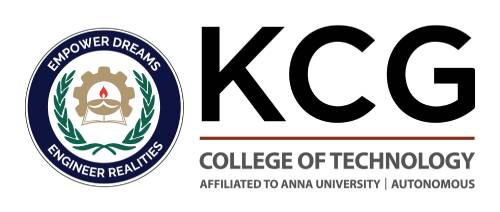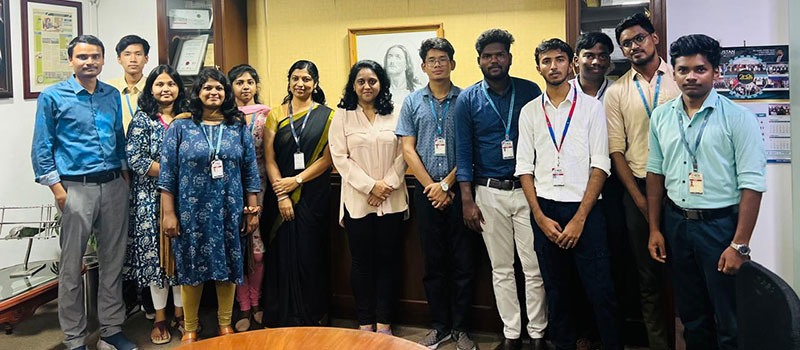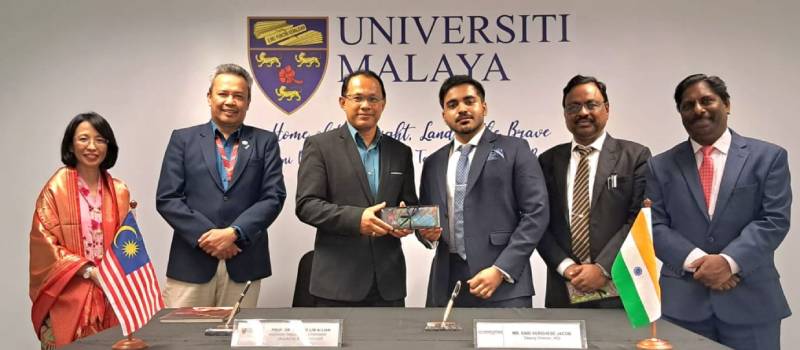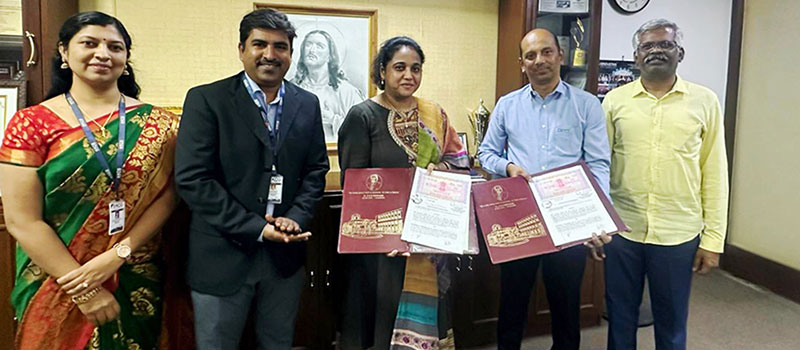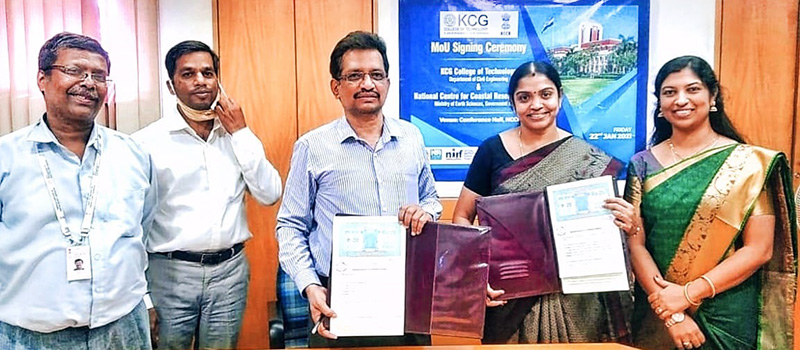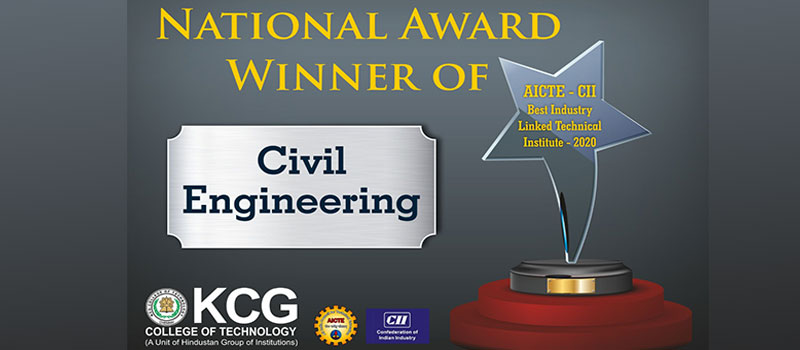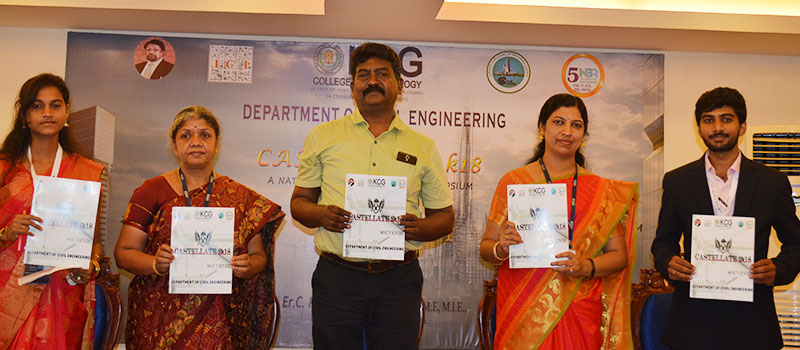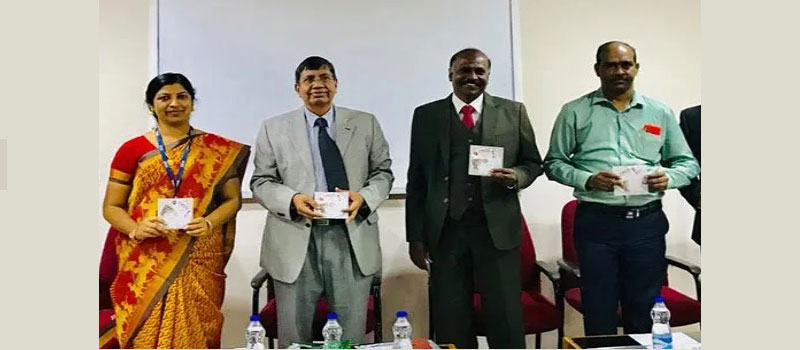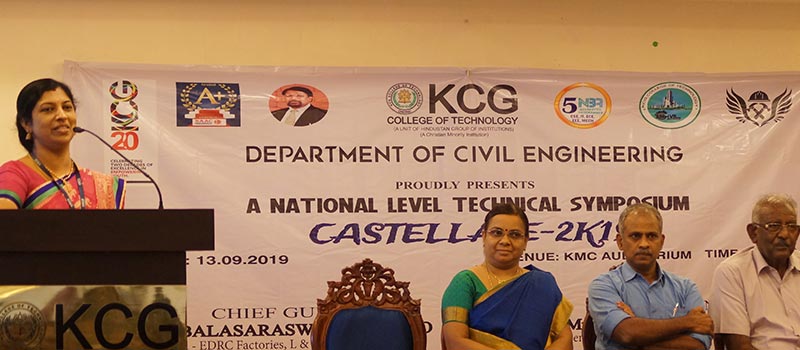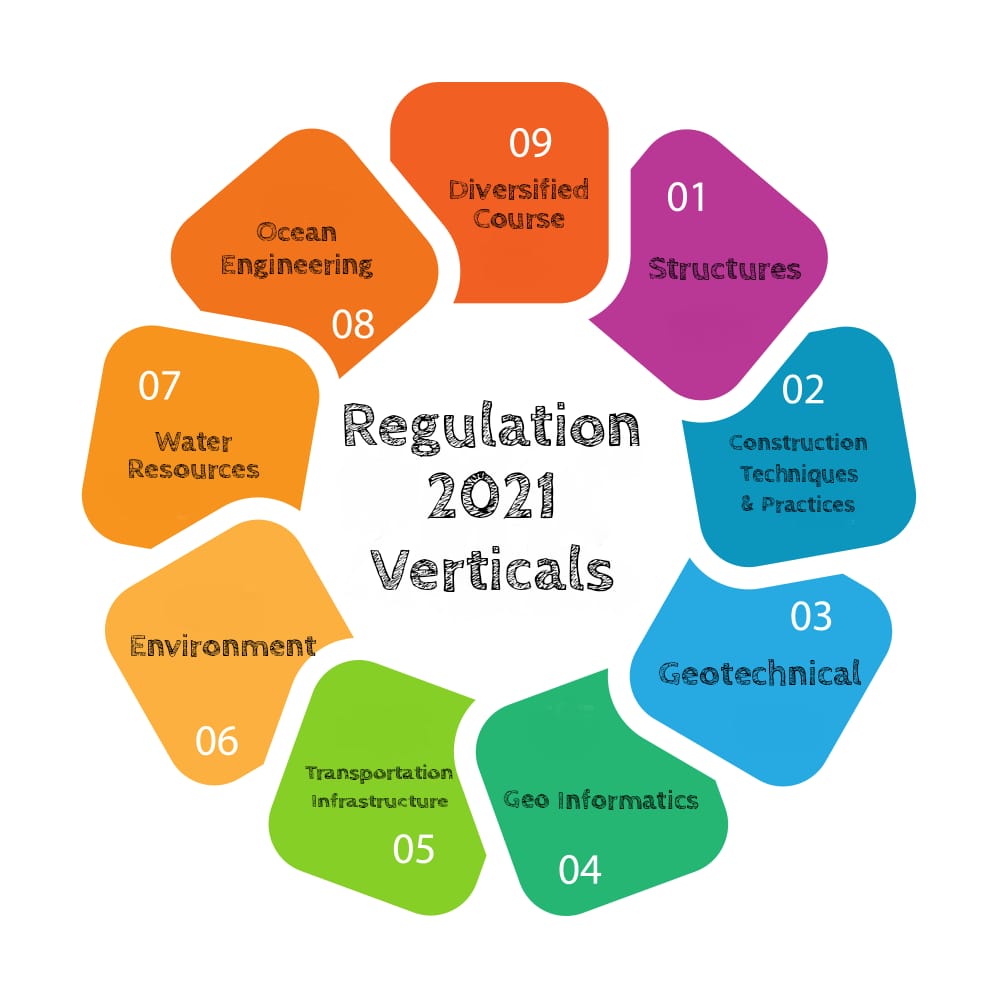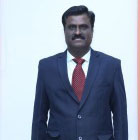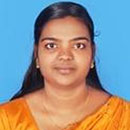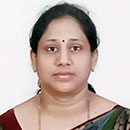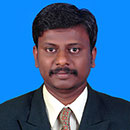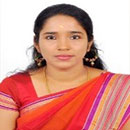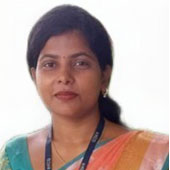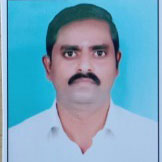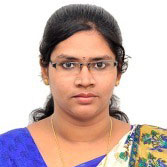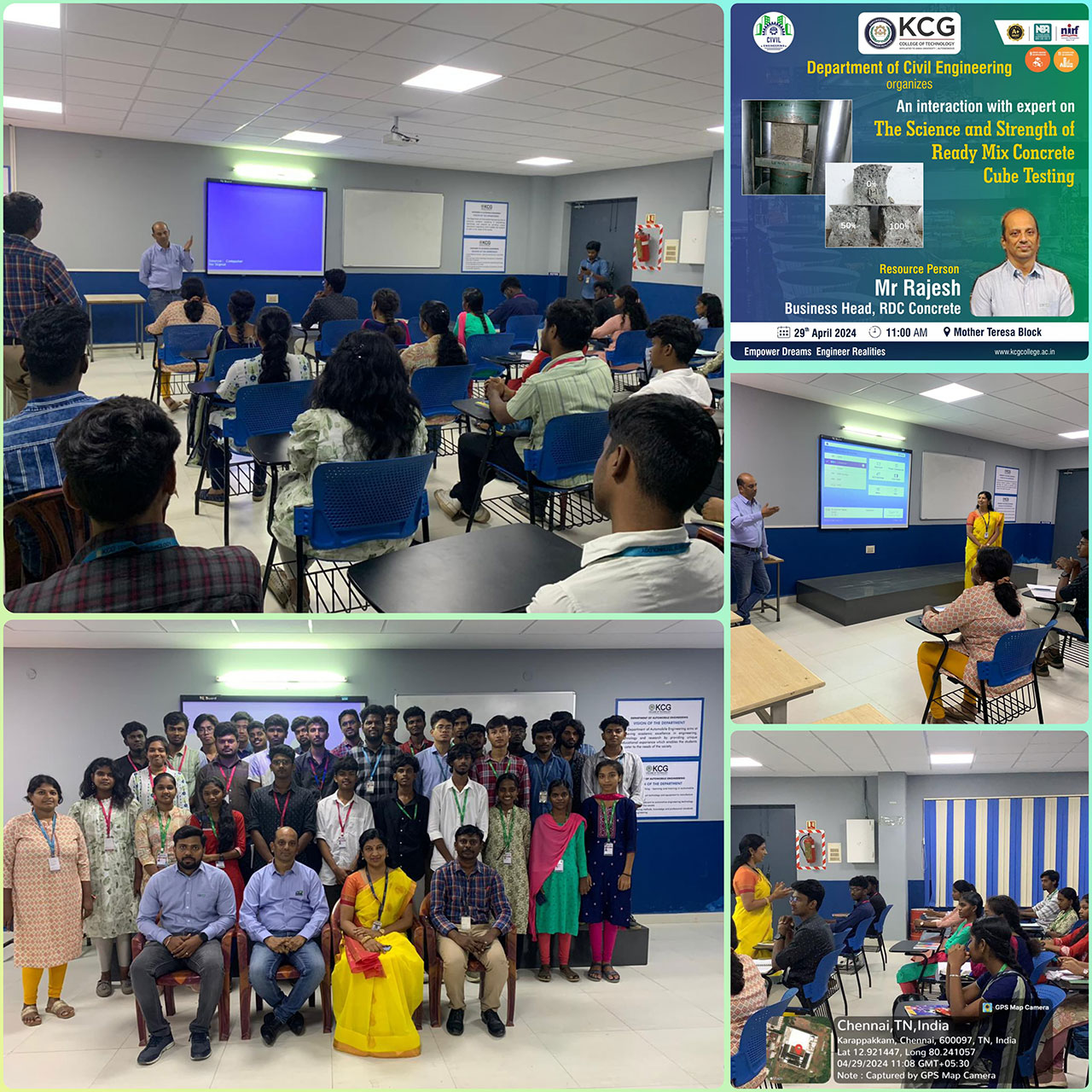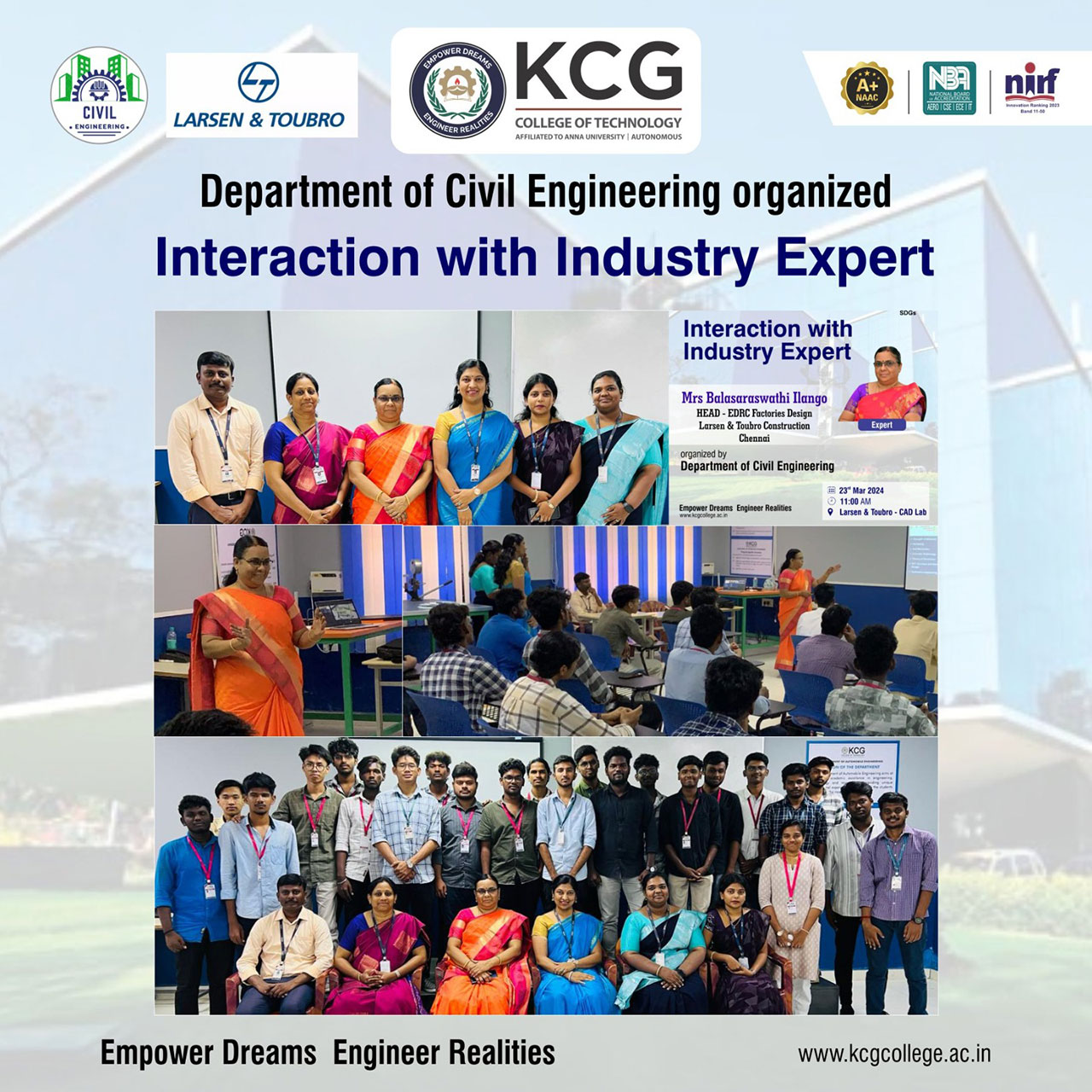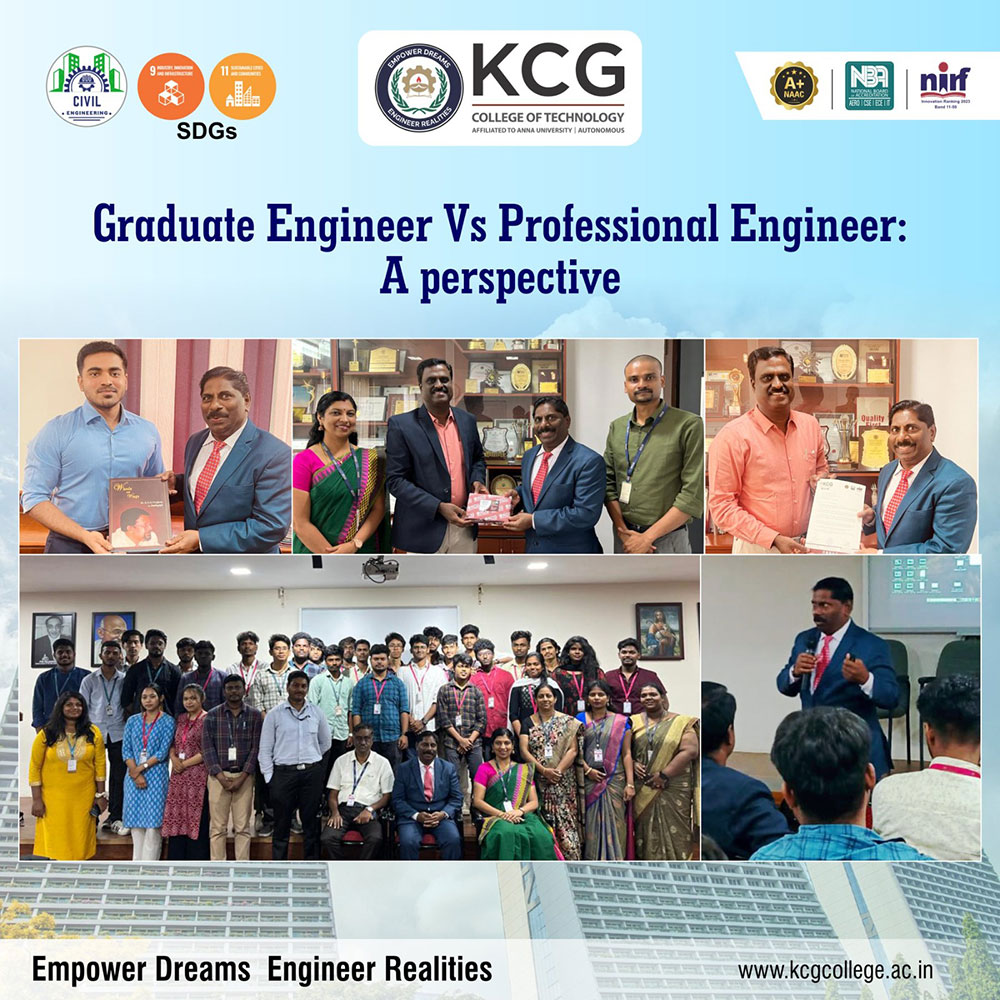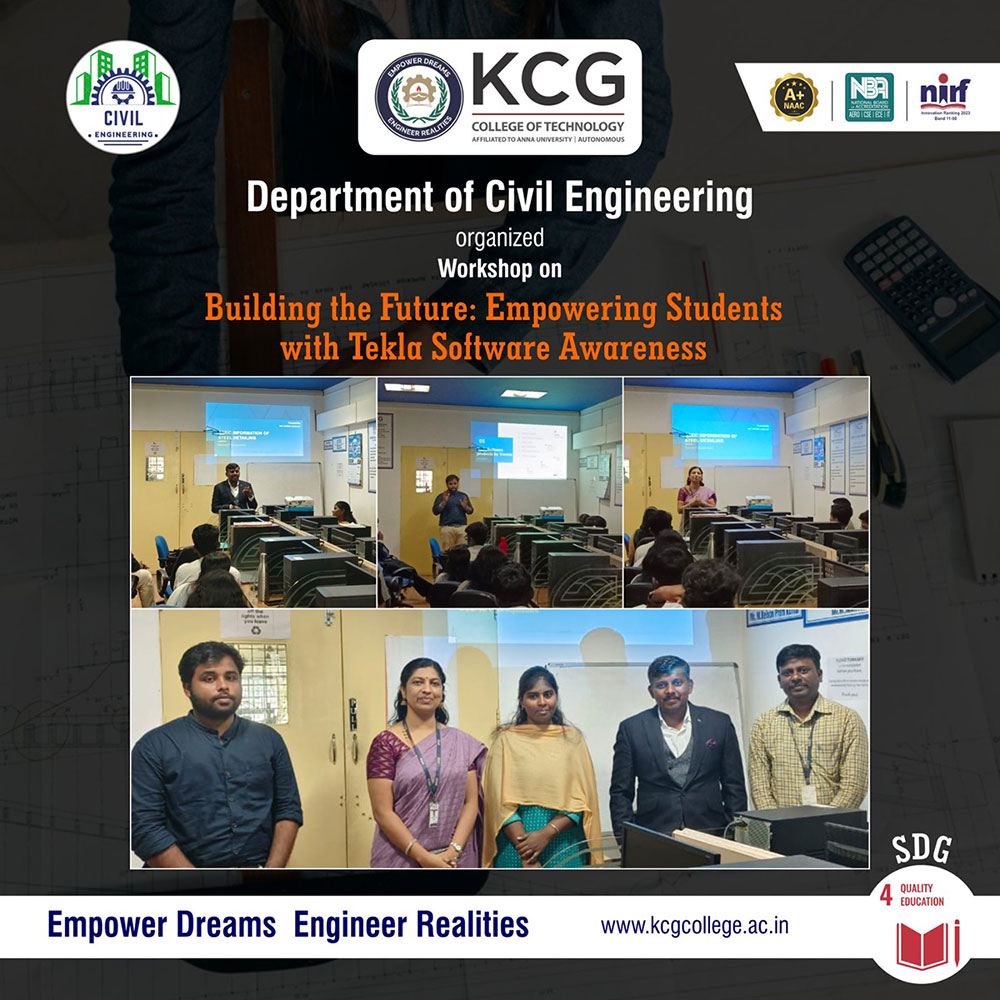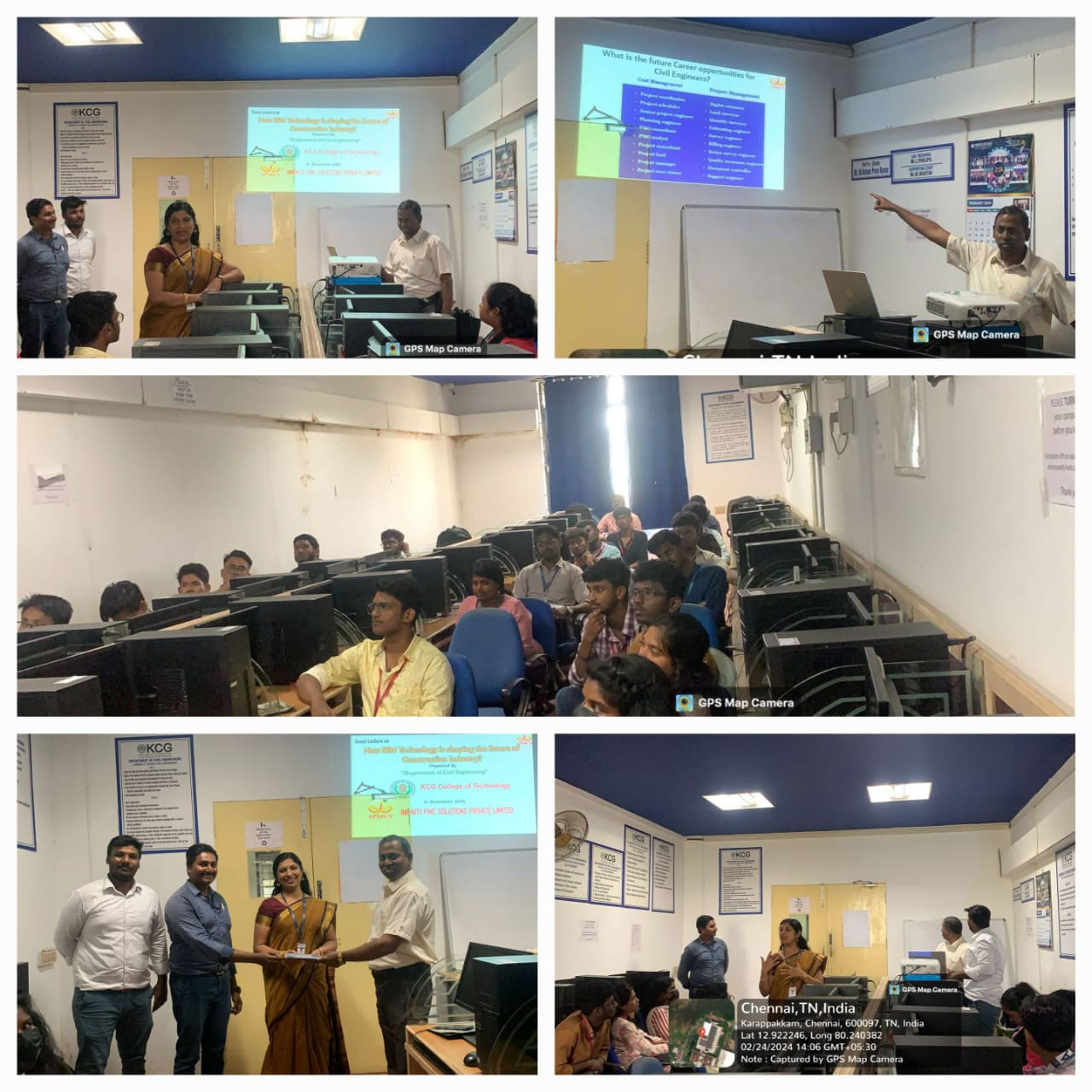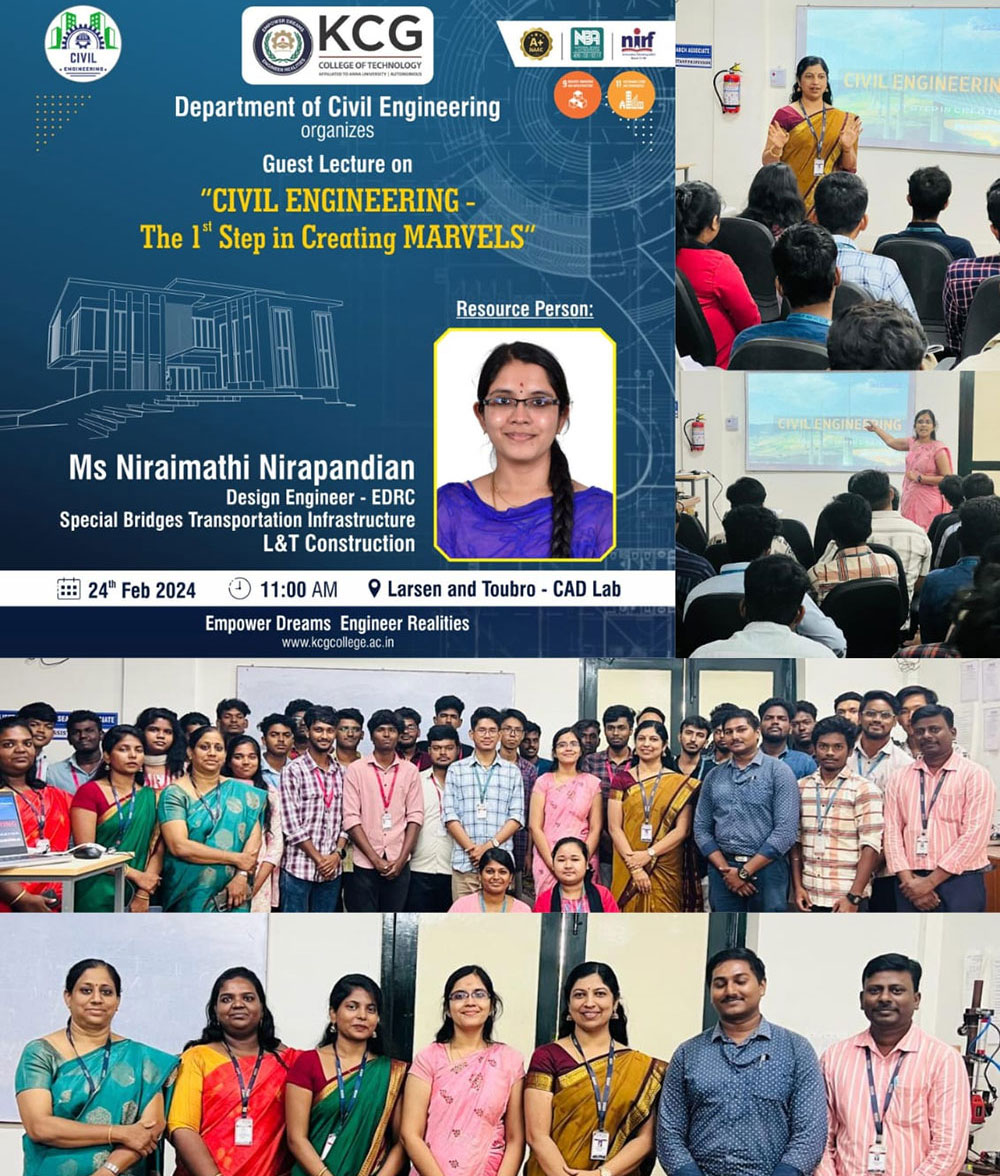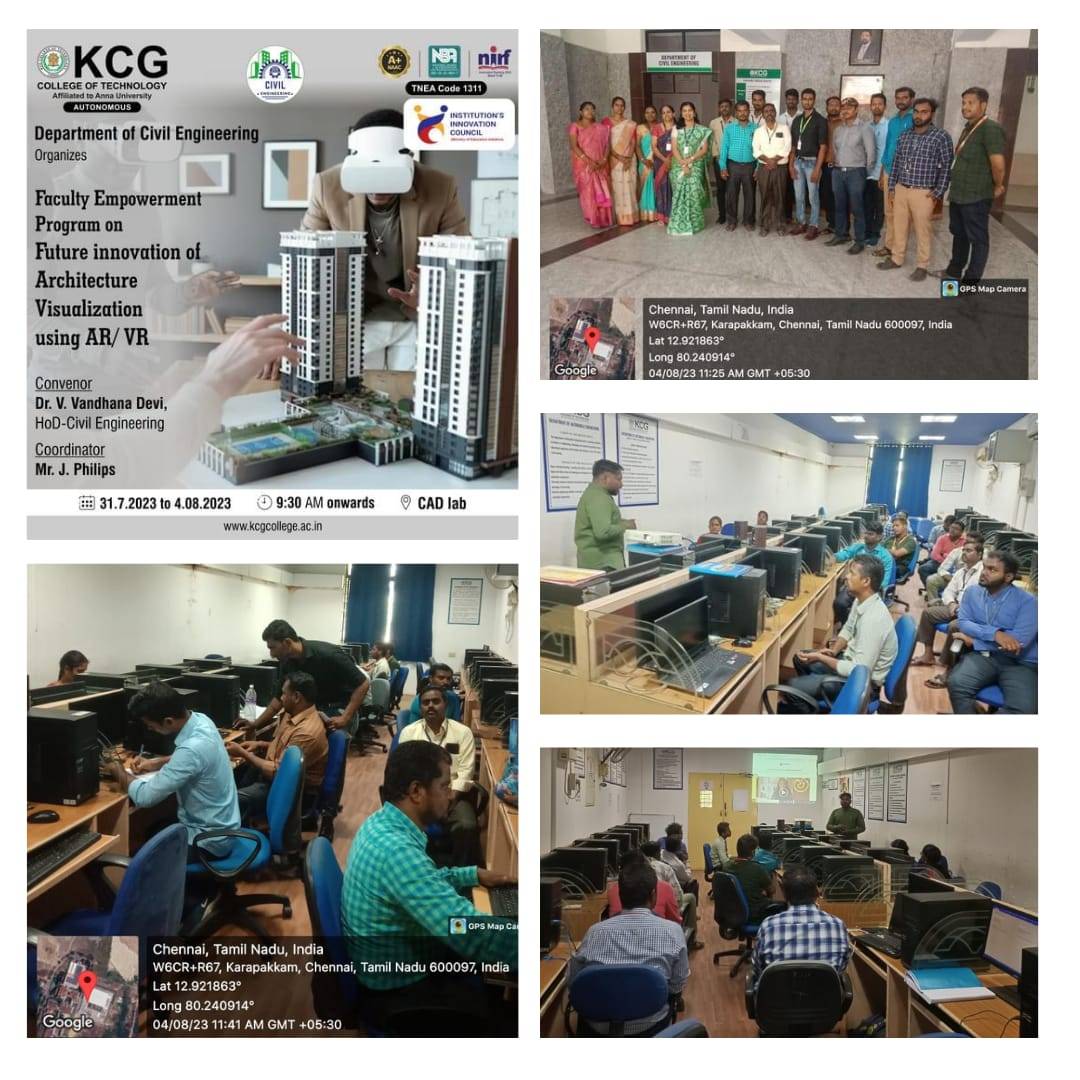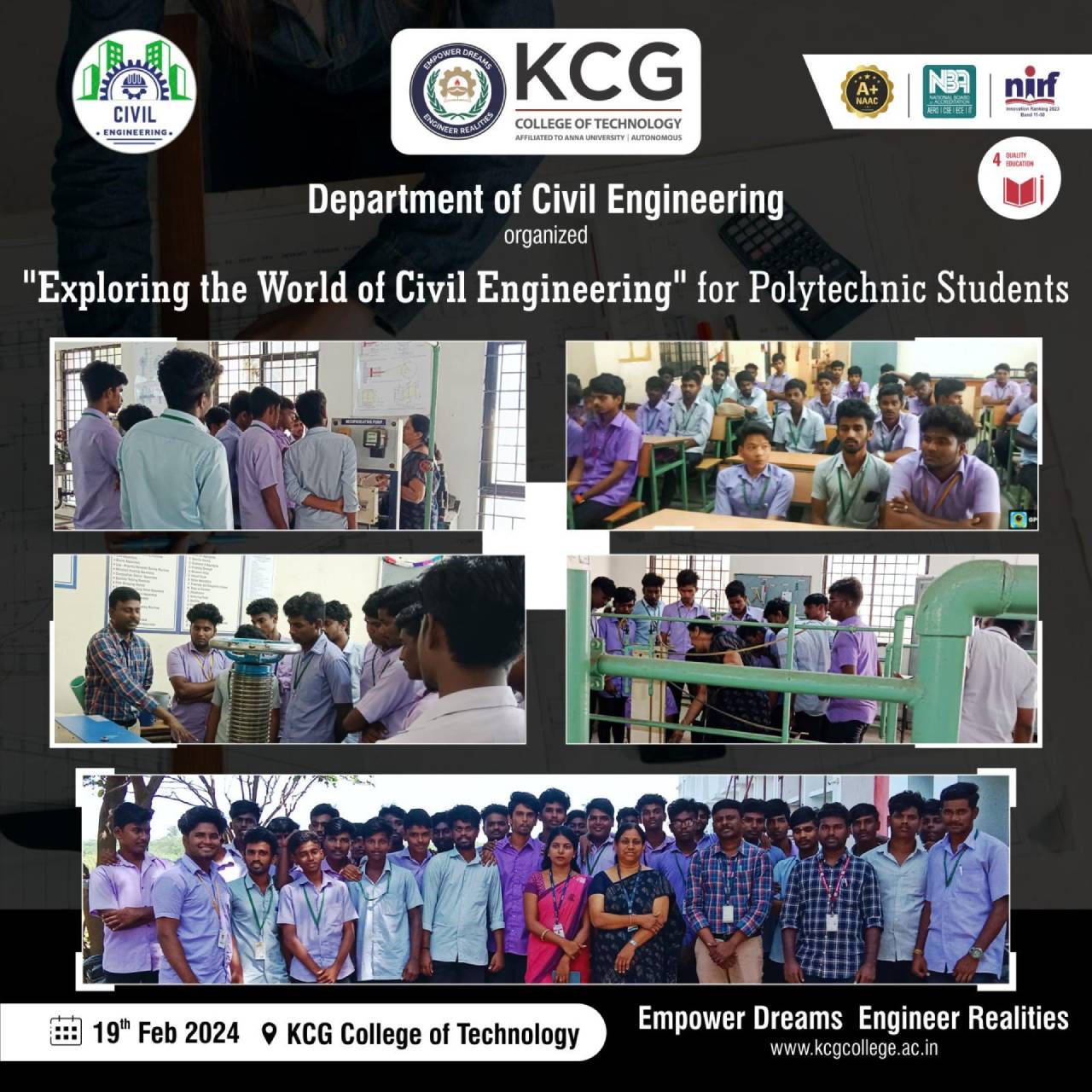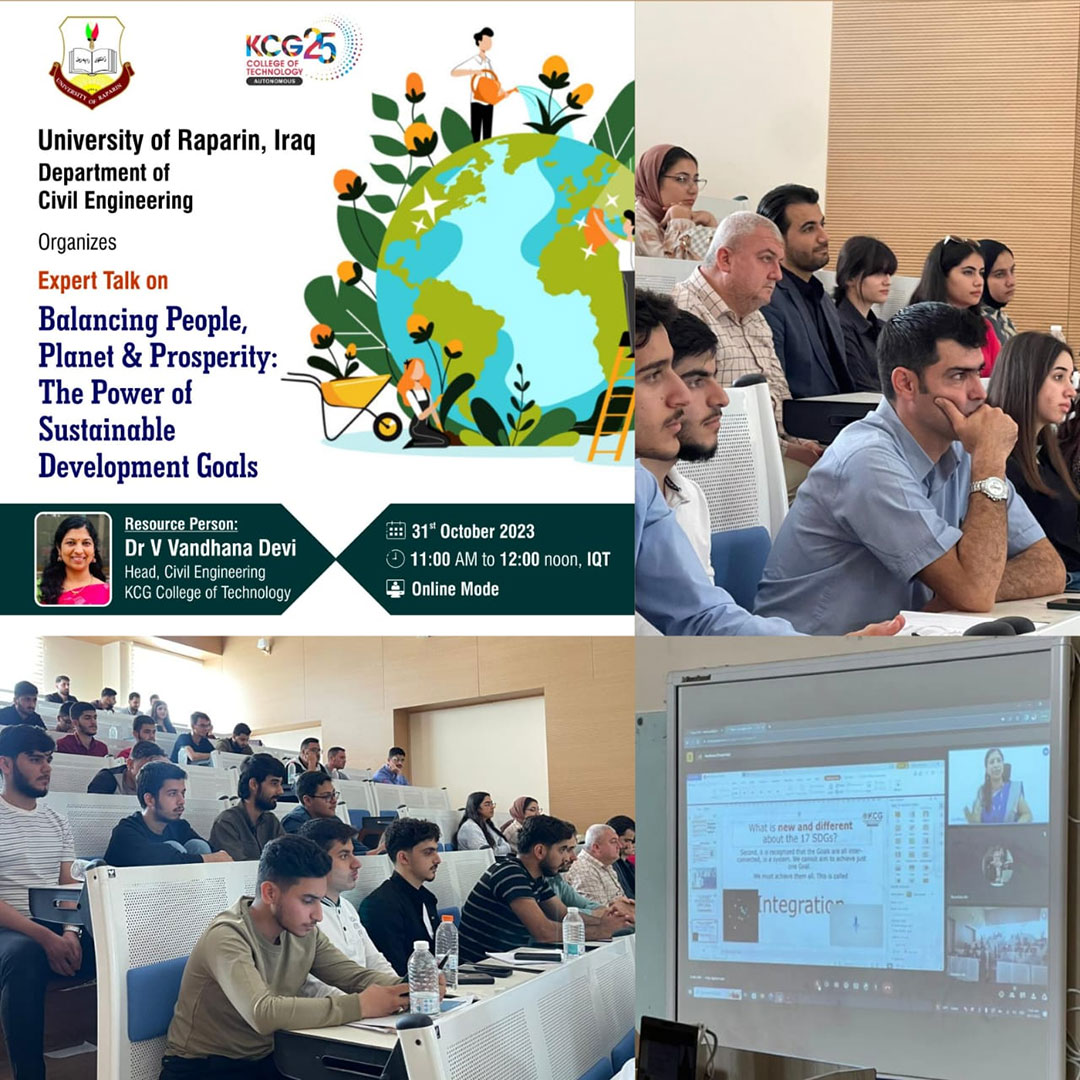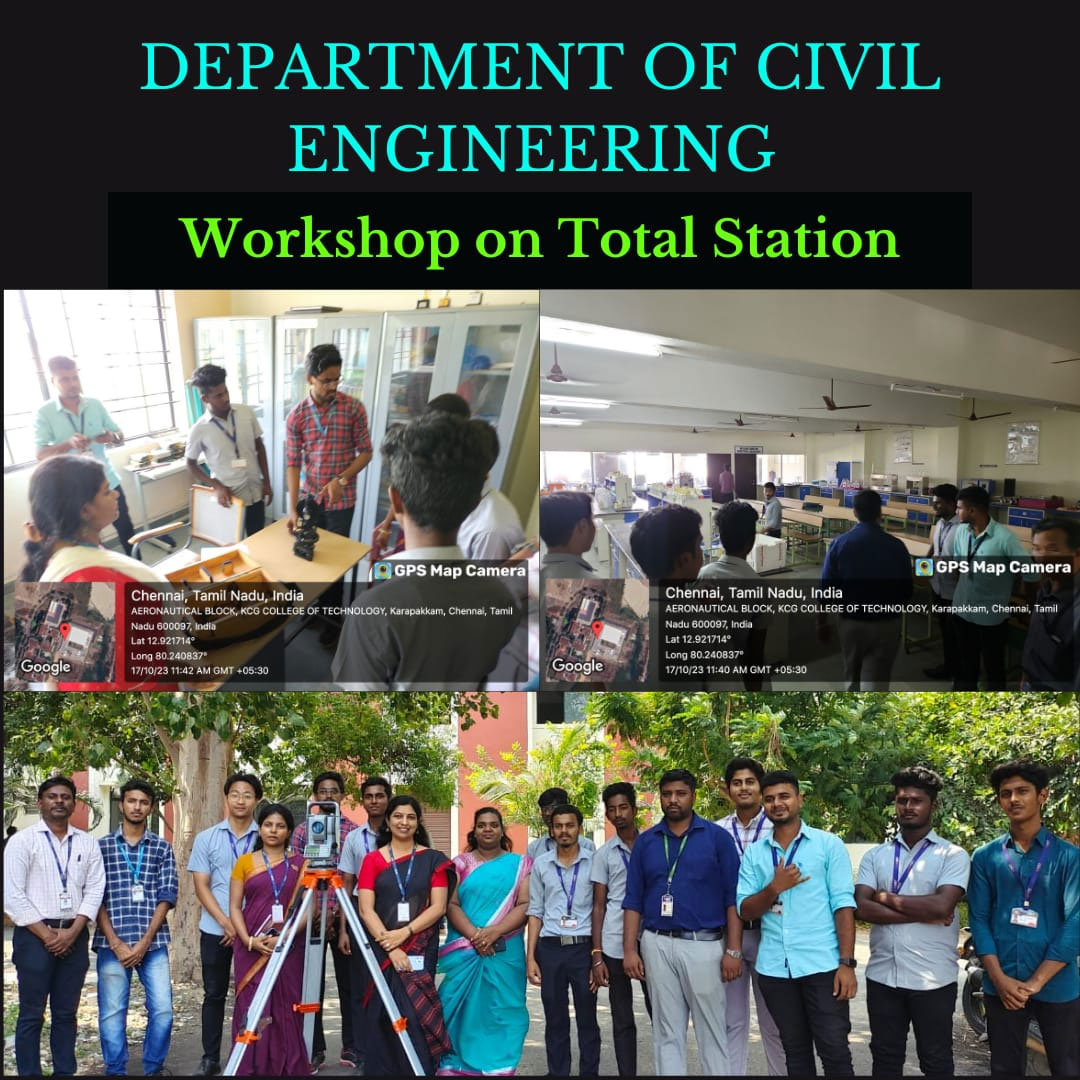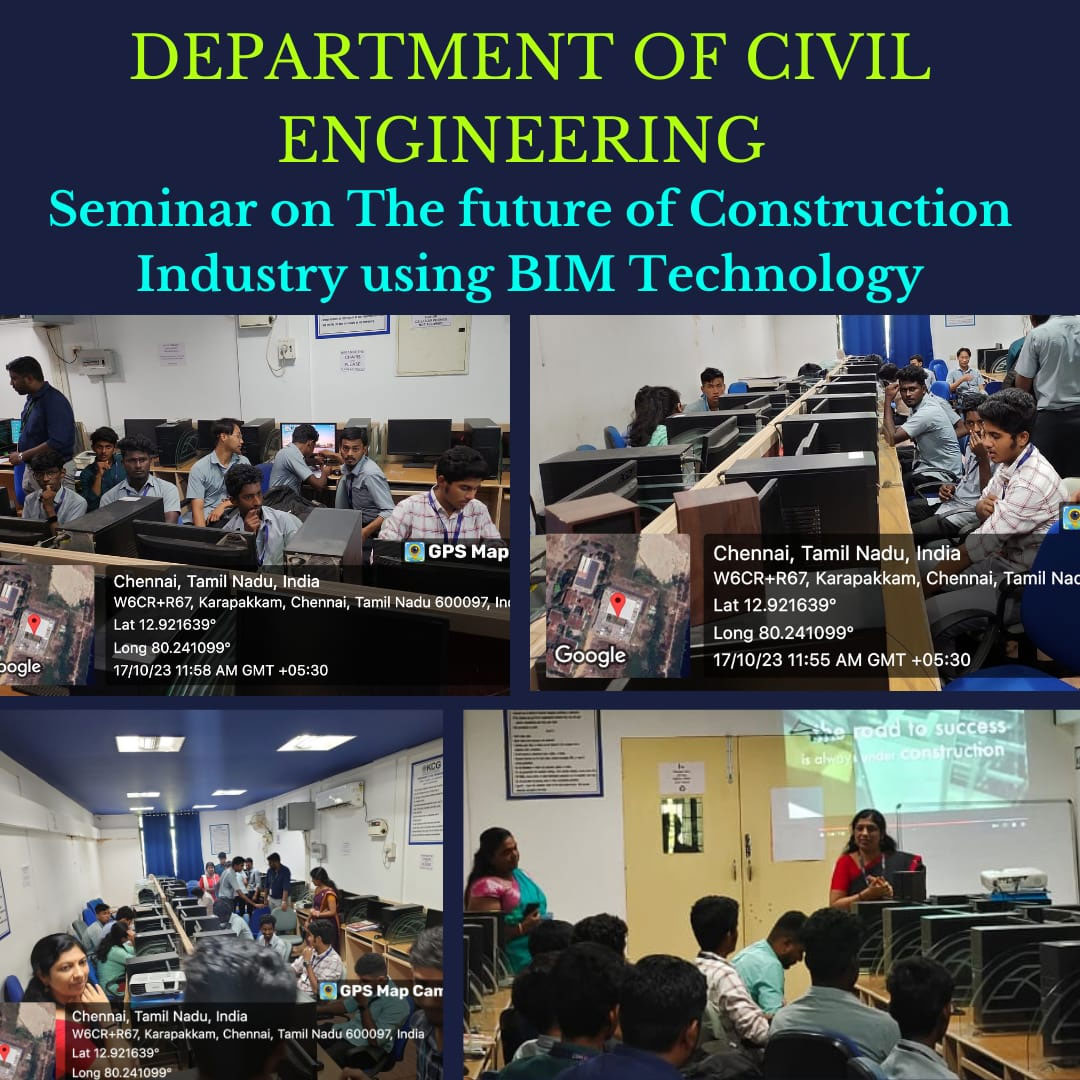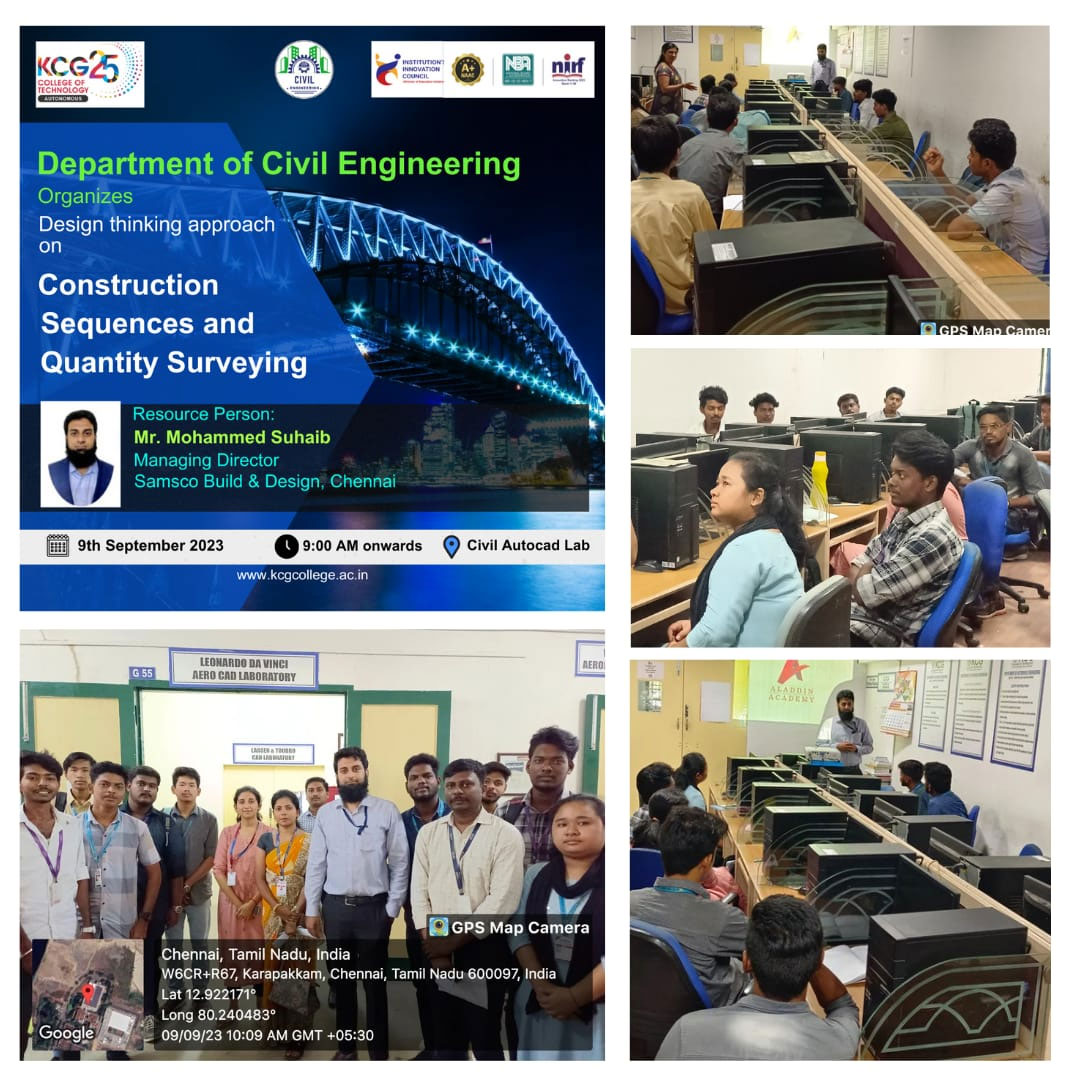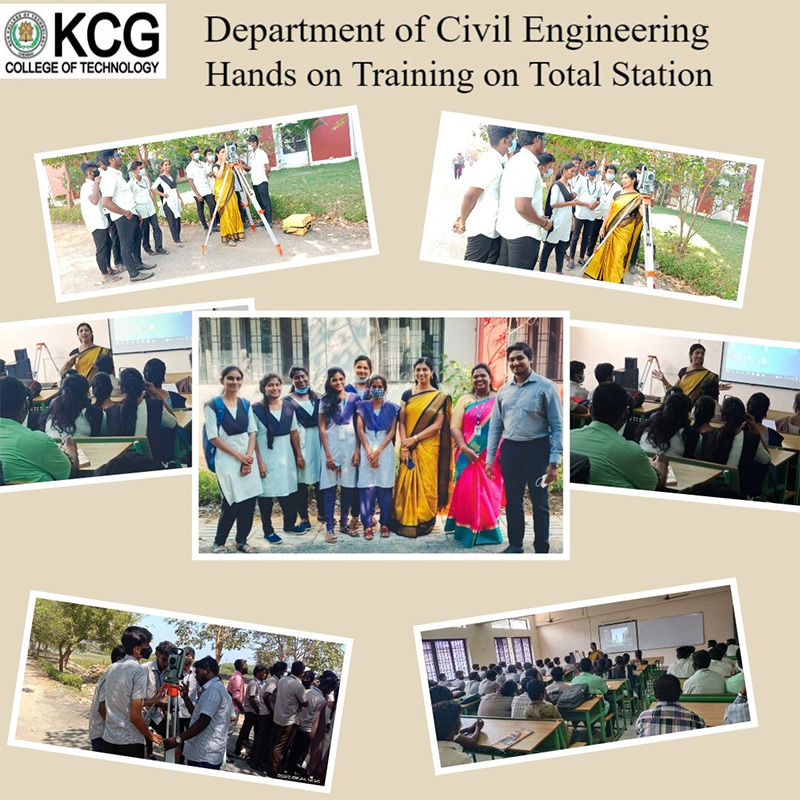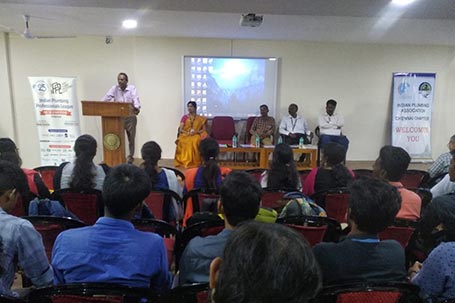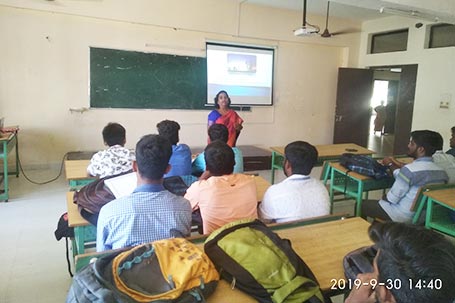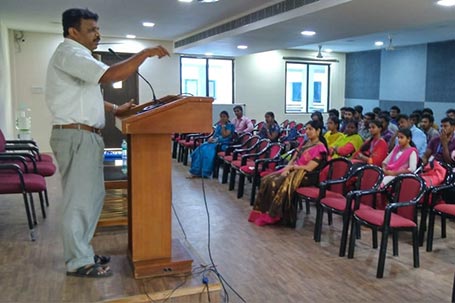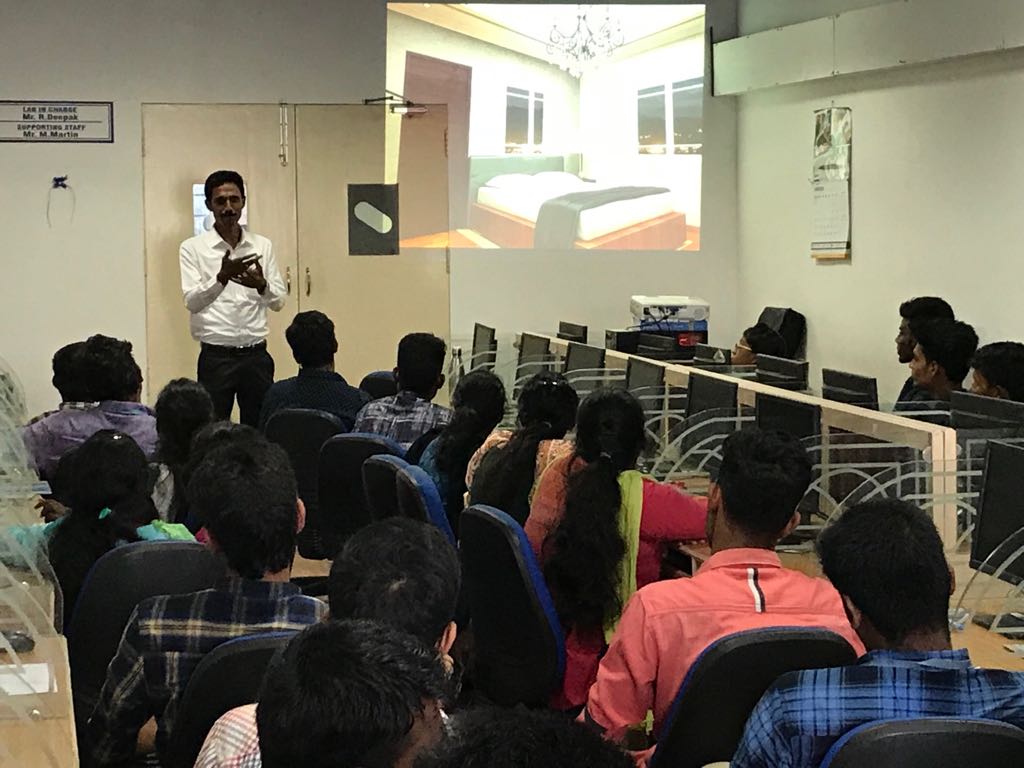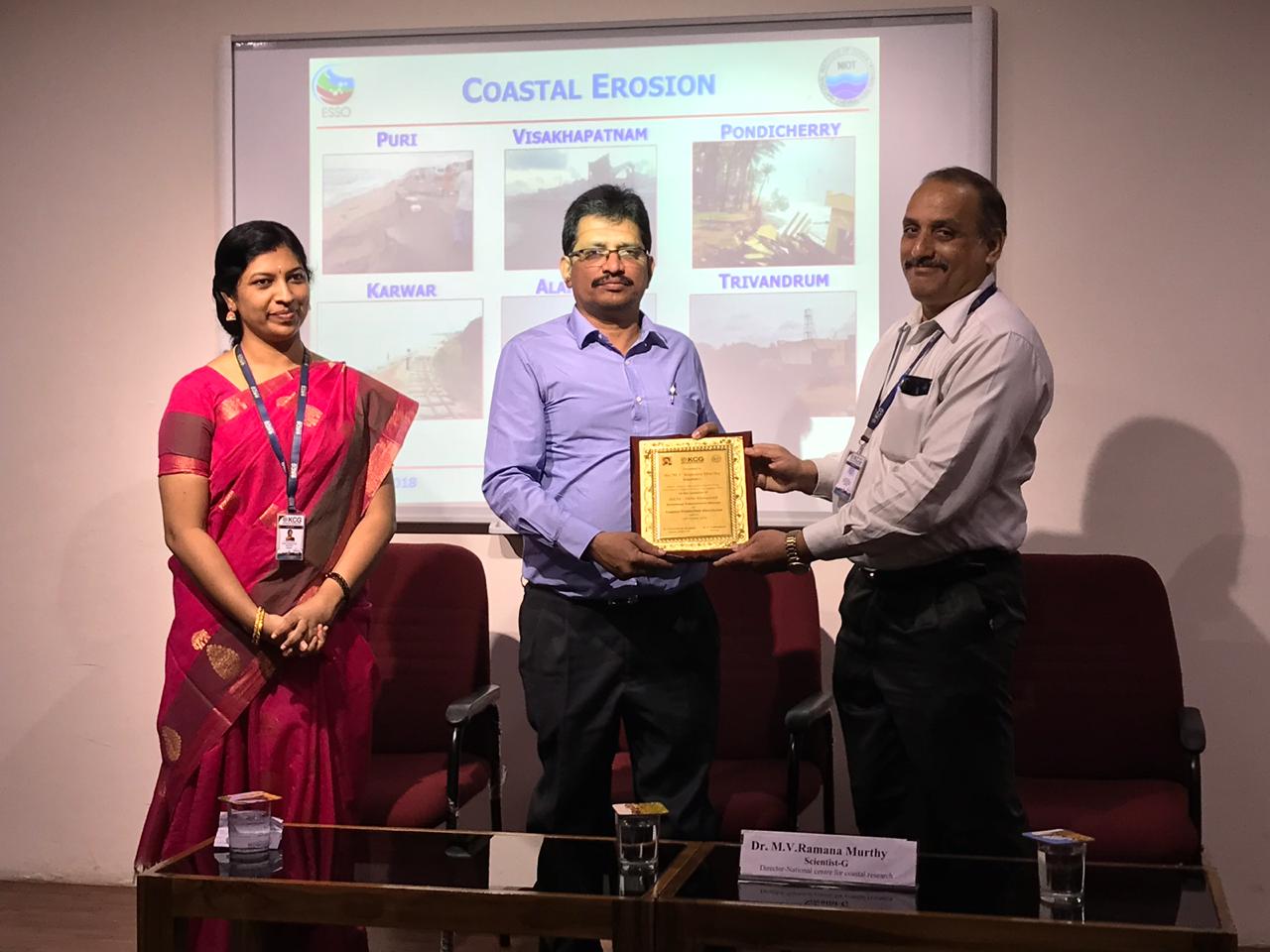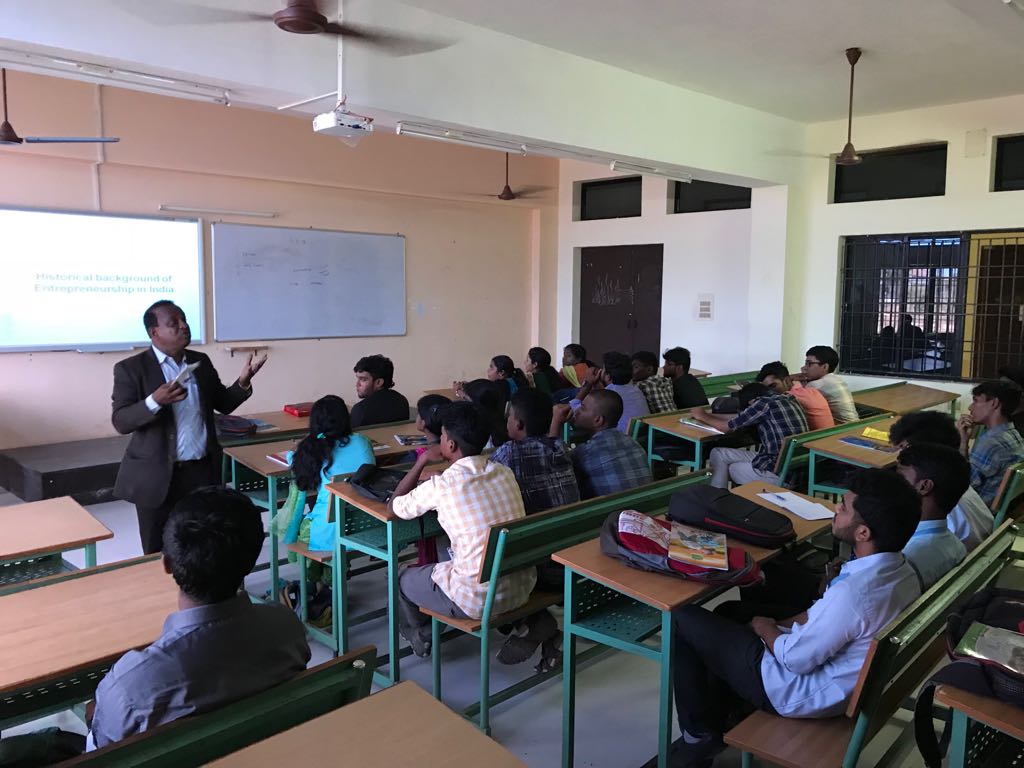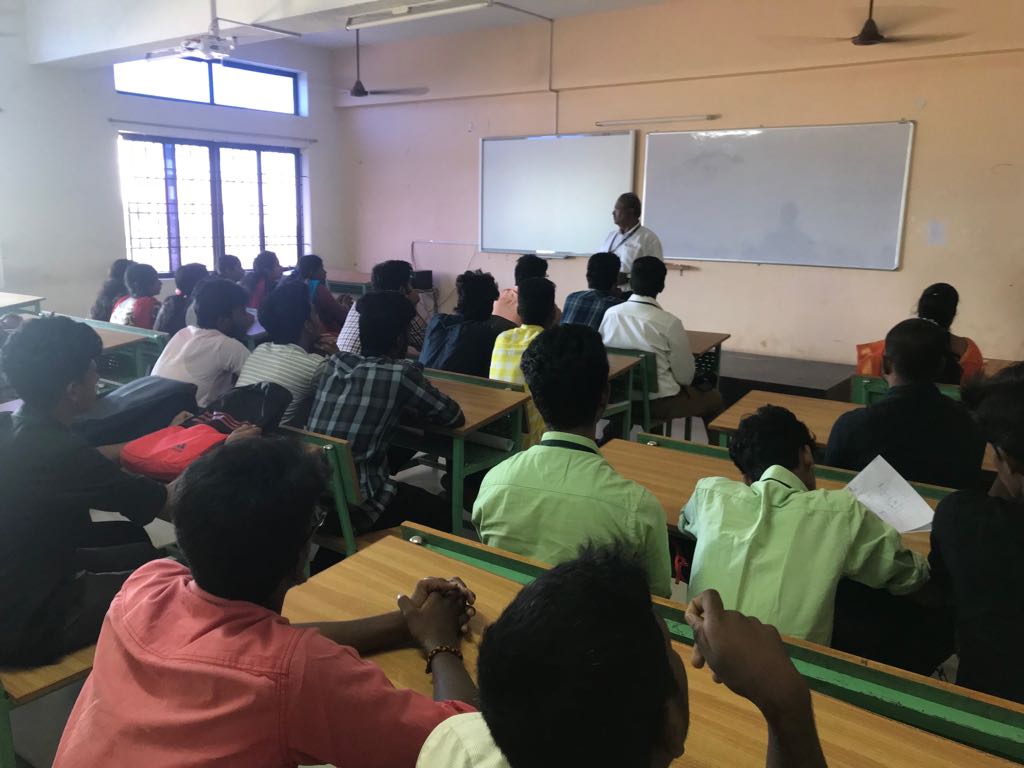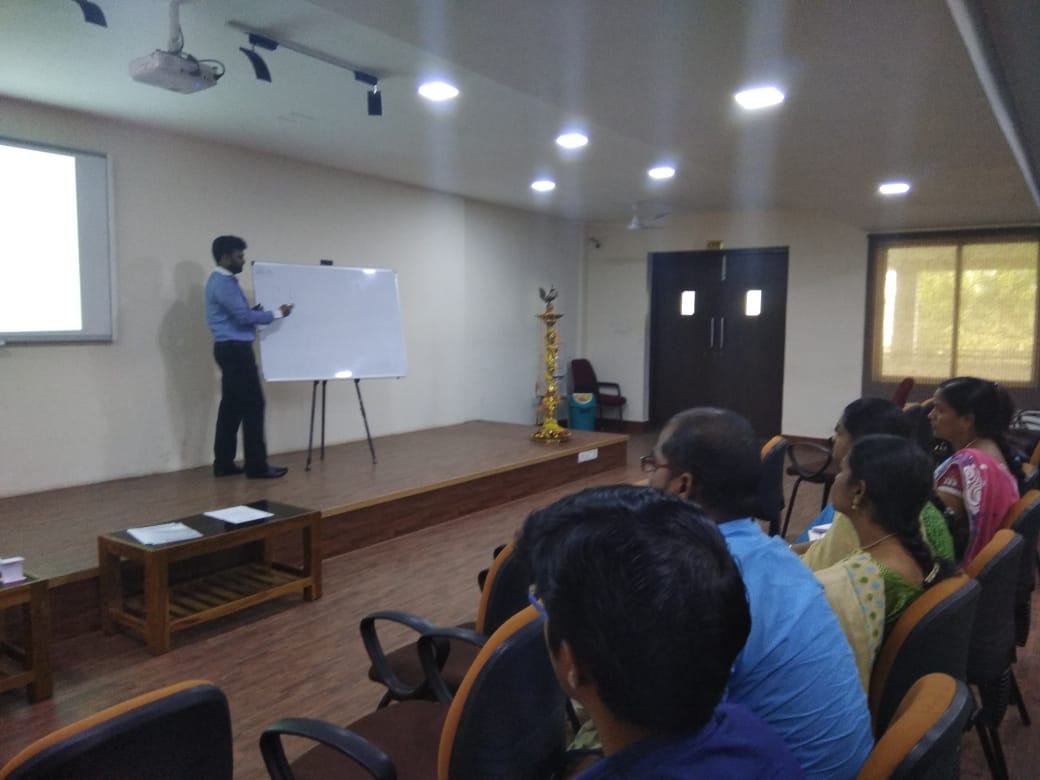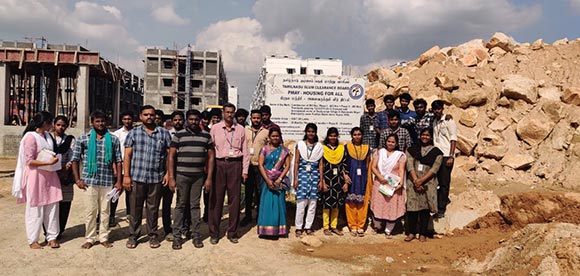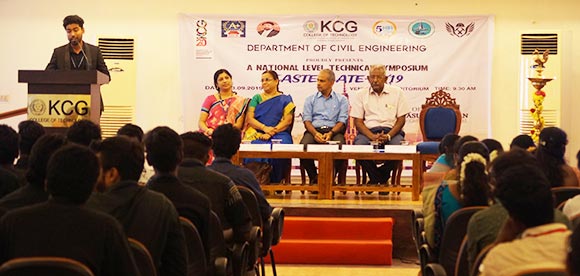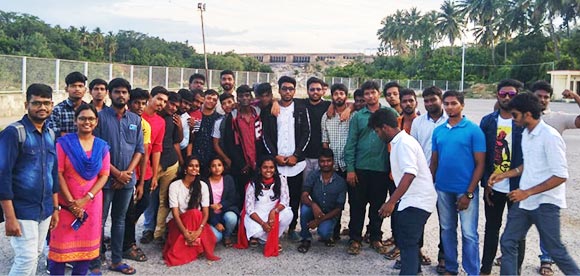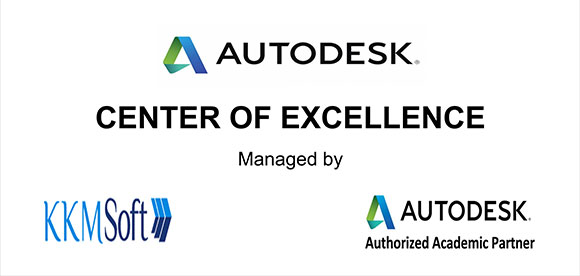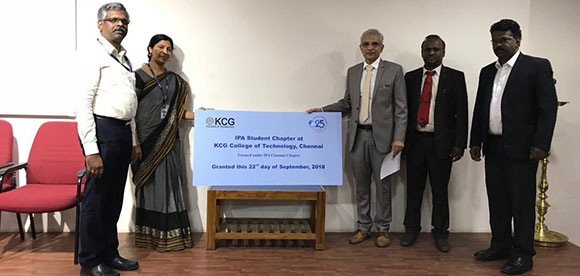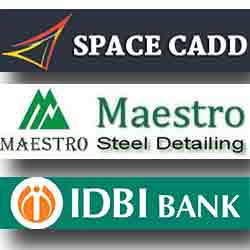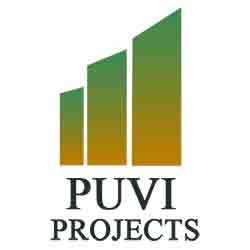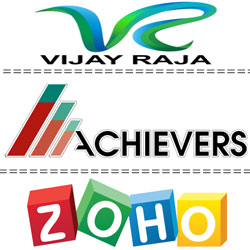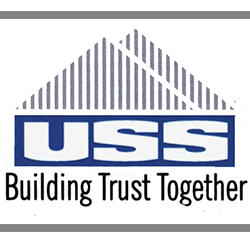About the Department
The Department of Civil Engineering offers undergraduate program to meet the demand for quality Civil Engineers with emphasis on fundamental theory and practice in Civil Engineering. The department has highly qualified faculty and excellent infrastructure facilities like state of the art laboratories, class rooms with modern teaching aids. The Department is also proud to have a Distinguished Visiting Professor, Dr. M. V. Ramanamurthy, Scientist G & Head, ICMAM under AICTE- INAE, distinguished visiting professorship scheme.
In addition to Teaching and Instruction, the faculty are also engaged in active research with an aim to generate innovative concepts and ideas or apply the existing technologies to new applications. The Department also undertake industrial consultancy work and also organizes Conferences / Workshop for professional interaction.
Experts from industry are regularly invited to present lectures and to interact with students and faculty. Students gain practical experience from field visits to industries, dams and irrigation structures, construction sites. Industry representatives visit the campus to recruit students finishing their degrees. The Department strives to provide additional support for securing employment with core companies.
Major Events & Achievements
- Civil Students participated in the world’s largest Hackathon organized by MHRD & AICTE, the team secured the fourth place in the country.
- Department has achieved 100% Placement in the year 2019.
- As an industry collaborative Civil Department has signed MoU with various industries like Builders Association of India (BAI), National Centre for Coastal Research (NCCR), KKM Soft Pvt Ltd., on staff training and student training and research on development of new products.
- The Department has exclusive Autodesk Centre of Excellence which is intended to impart knowledge and skills on various Autodesk software to our graduates.
- Student chapter of Indian Concrete Institute (ICI) & Indian Plumbing Association (IPA) has been formed for active learning which helps the students to actively participate and organize events in relevant fields.
Vision
The Department of Civil Engineering strives to become a competent academic centre for quality education in the areas of civil engineering and research and to produce professionally skillful civil engineers to meet the demands of the society.
Mission
Our vision is supported by our four-fold mission statement:
- Impart high quality education through innovative teaching-learning process.
- Establish state-of-the-art infrastructure to facilitate skill development in cutting-edge technologies and research.
- Inculcate students with innovative thinking, ethical principles, leadership skills and entrepreneurial
capabilities. - Enhance the competency and knowledge of the faculty in the emerging areas of technology in the domain of civil
engineering.
Programme Educational Objectives
The graduates will:
- Excel as successful professionals in various engineering disciplines
- Have a successful career in research and development, design, testing and manufacturing in civil industries
- Provide efficient solutions for real world problems using contemporary tools
- Exhibit ethical values, professional attitude and engage in lifelong learning
Programme Outcomes
Engineering graduates will be able to:
- Engineering Knowledge: Apply the knowledge of mathematics, science, engineering fundamentals, and an engineering specialization to the solution of complex engineering problems.
- Problem Analysis: Identify, formulate, review research literature, and analyze complex engineering problems reaching substantiated conclusions using first principles of mathematics, natural sciences, and engineering sciences.
- Design / Development of Solutions: Design solutions for complex engineering problems and design system components or processes that meet the specified needs with appropriate consideration for the public health and safety, and the cultural, societal, and environmental considerations.
- Conduct Investigations of Complex Problems: Use research based knowledge and research methods including design of experiments, analysis and interpretation of data, and synthesis of the information to provide valid conclusions.
- Modern Tool Usage: Create, select, and apply appropriate techniques, resources, and modern engineering and IT tools including prediction and modeling to complex engineering activities with an understanding of the limitations.
- The Engineer and Society: Apply reasoning informed by the contextual knowledge to assess societal, health, safety, legal and cultural issues and the consequent responsibilities relevant to the professional engineering practice.
- Environment and Sustainability: Understand the impact of the professional engineering solutions in societal and environmental contexts, and demonstrate the knowledge of, and need for sustainable development.
- Ethics: Apply ethical principles and commit to professional ethics and responsibilities and norms of the engineering practice.
- Individual and Team Work: Function effectively as an individual, and as a member or leader in diverse teams, and in multidisciplinary settings.
- Communication: Communicate effectively on complex engineering activities with the engineering community and with society at large, such as, being able to comprehend and write effective reports and design documentation, make effective presentations, and give and receive clear instructions.
- Project Management and Finance: Demonstrate knowledge and understanding of the engineering and management principles and apply these to one’s own work, as a member and leader in a team, to manage projects and in multidisciplinary environments.
- Lifelong Learning: Recognize the need for, and have the preparation and ability to engage in independent and lifelong learning in the broadest context of technological change.
Program Specific Objectives(PSOs)
The graduates will:
- PSO 1:Analyse, design and solve complex problems in structural, environmental, and foundation engineering as per codal provisions
- PSO 2:Identify sustainable construction materials, techniques and practices for civil engineering construction
- PSO 3:Use latest software tools to plan, analyse and design civil engineering structures.
Specialization: Hydro-Dynamic Modeling, Environmental Impact Assessment and Risk Assessment
B.E(Civil Engineering)
B.E(Civil Engineering)
B.E (Civil Engineering)
B.E(Civil Engineering)
B.E (Civil Engineering)
University of Malaya, Kuala Lumpur, Malaysia
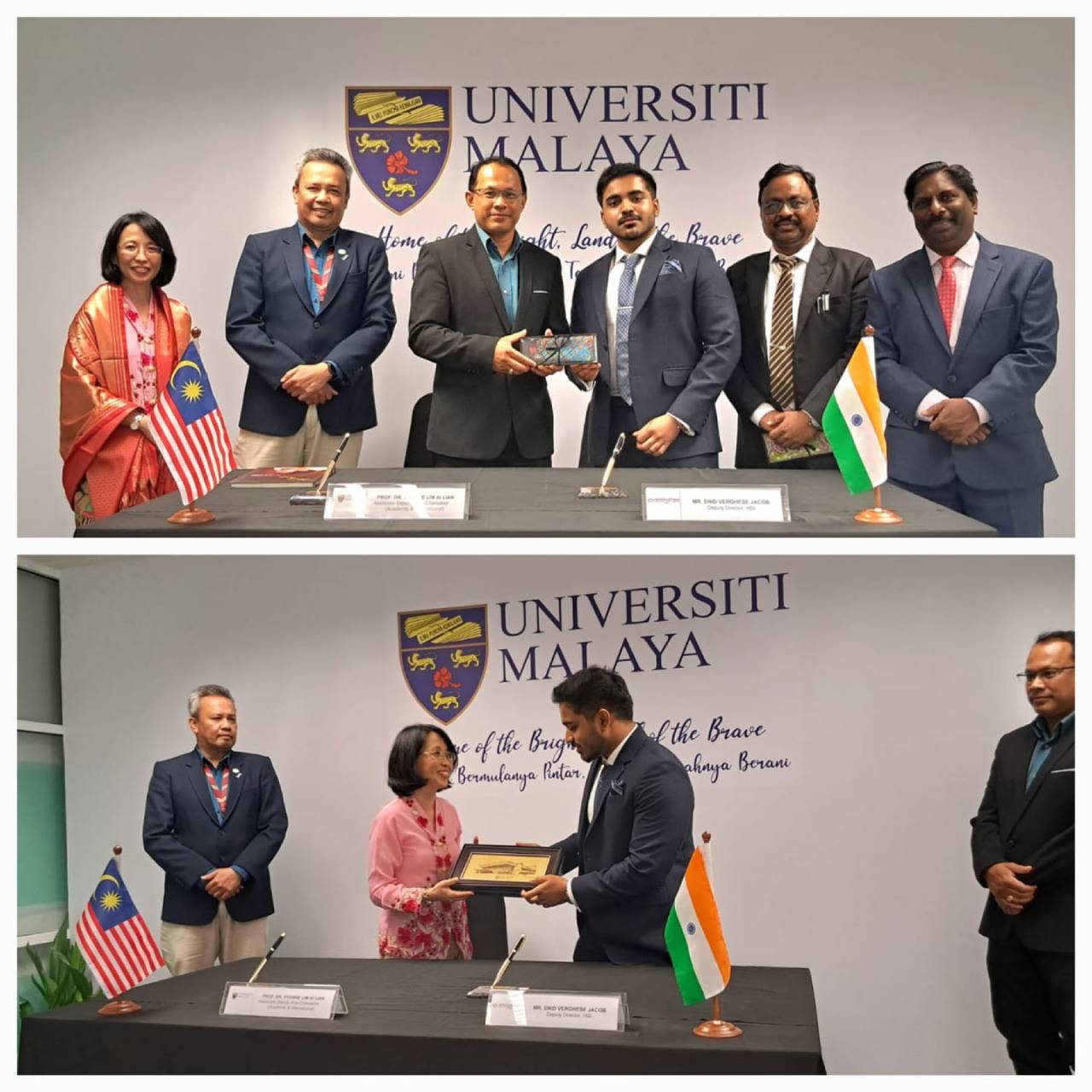
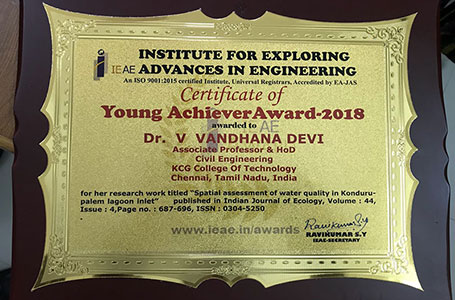
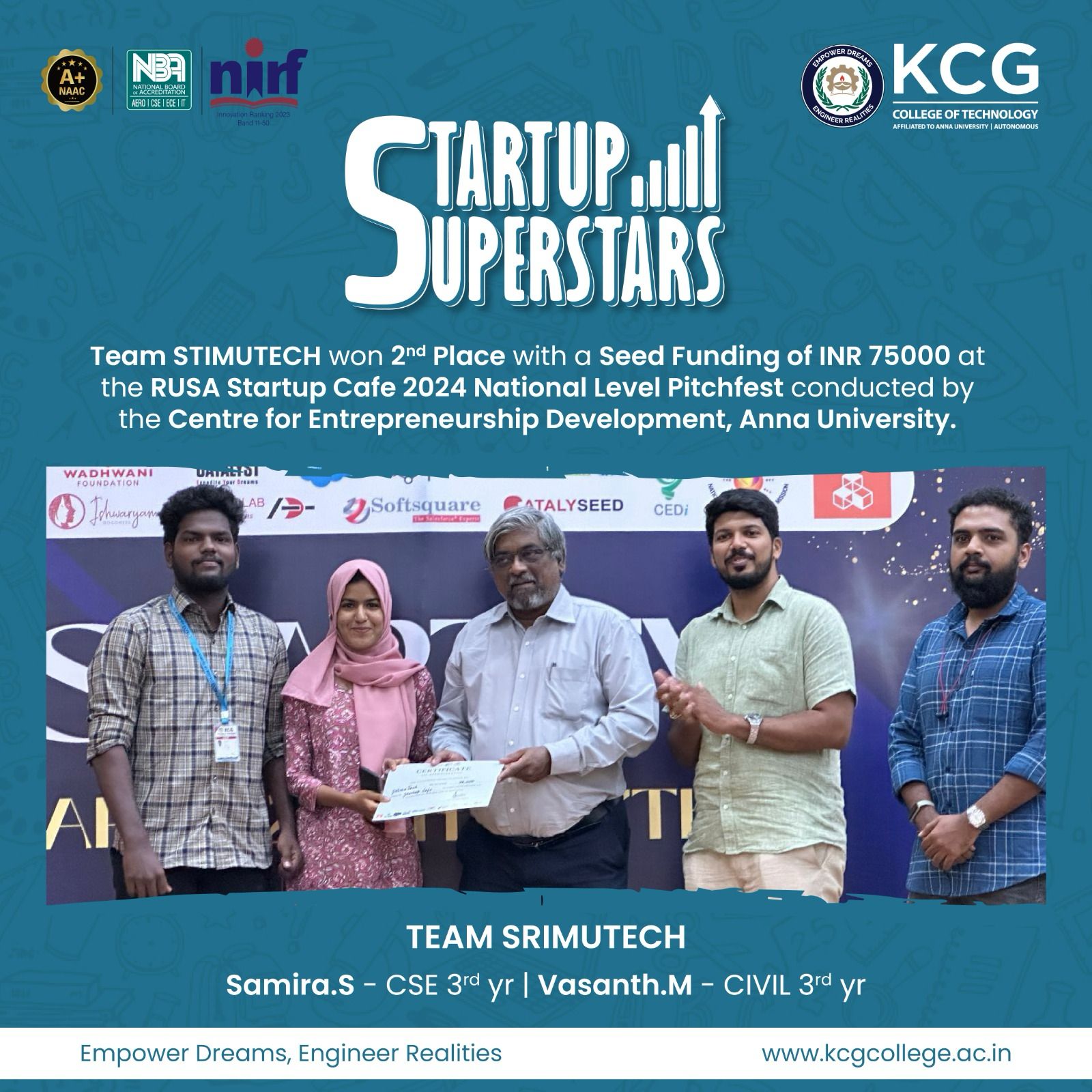
Our Student Vasanth.M of Pre final year Won 2nd Place with a Seed Funding of INR75000 at the RUSA Startup Cafe 2024 National level Pitchfest conducted by the centre for Entrepreneurship Development, Anna University.
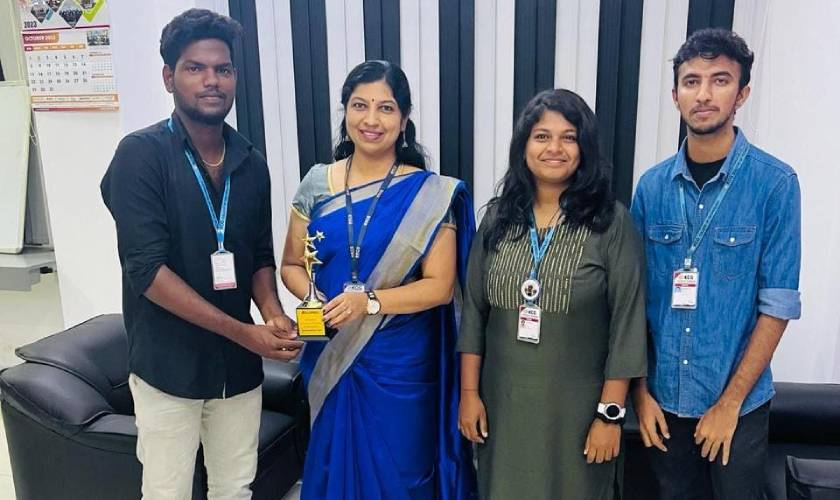
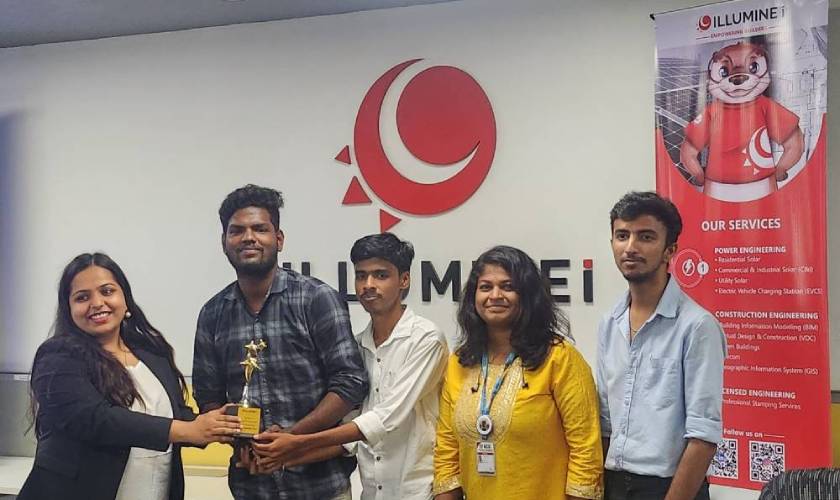
Our Students Vasanth.M, Manoj Kumar.J.N and Padmashree.P of Pre final year won First prize in Event Young Professional in Sustainability conducted by Illuminei for project entitled solar farms over cooum river under the Guidance of Dr.V.Vandhana Devi on 28.10.2023
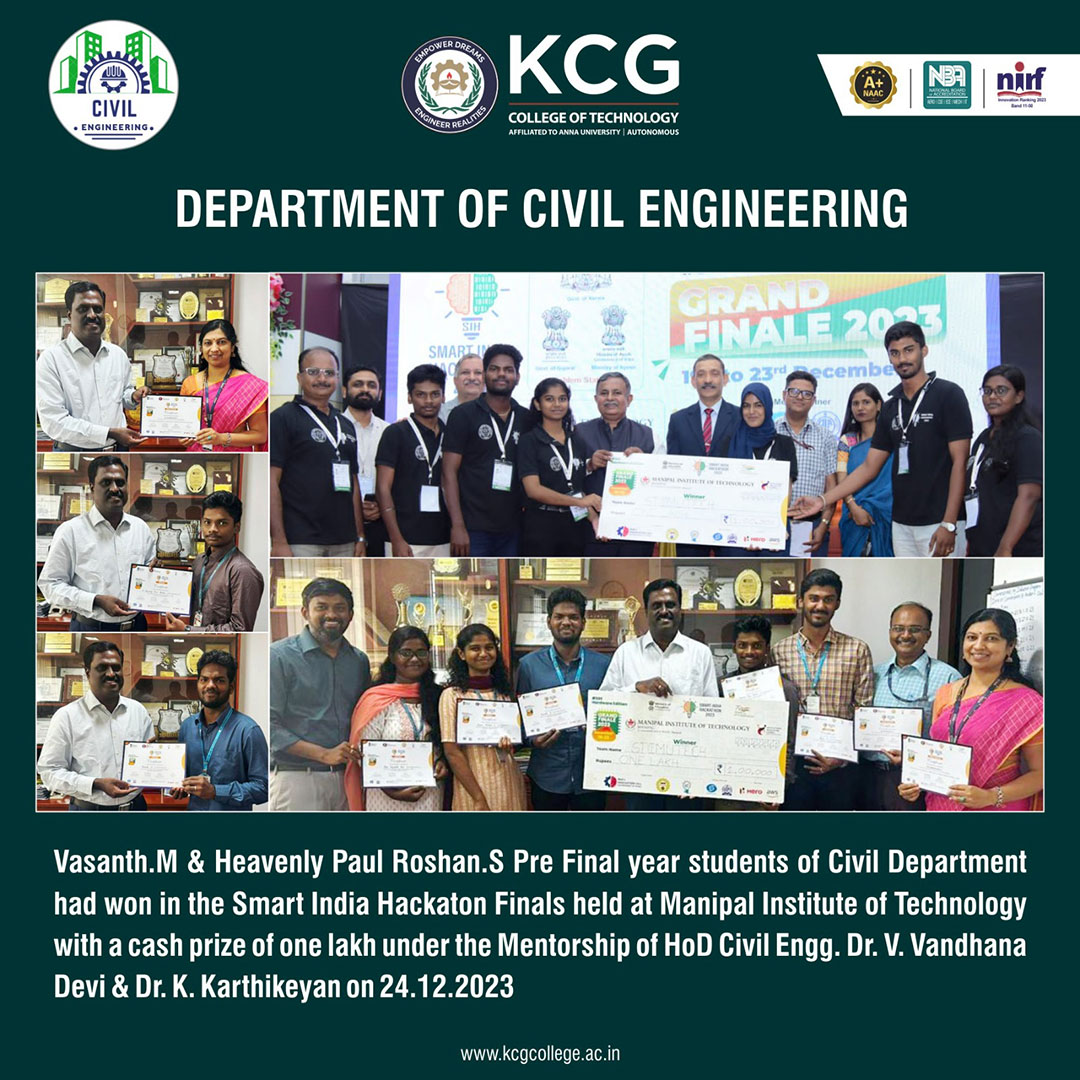
Vasanth.M and Heavenly Paul Roshan.S Pre Final year students of Civil Department had won in the Smart India Hackathon Finals held at Manipal Institute of Technology with a cash prize of One lakh under the Mentorship of HoD Civil Engg. Dr. V. Vandhana Devi and Dr. K. Karthikeyan on 24.12.2023
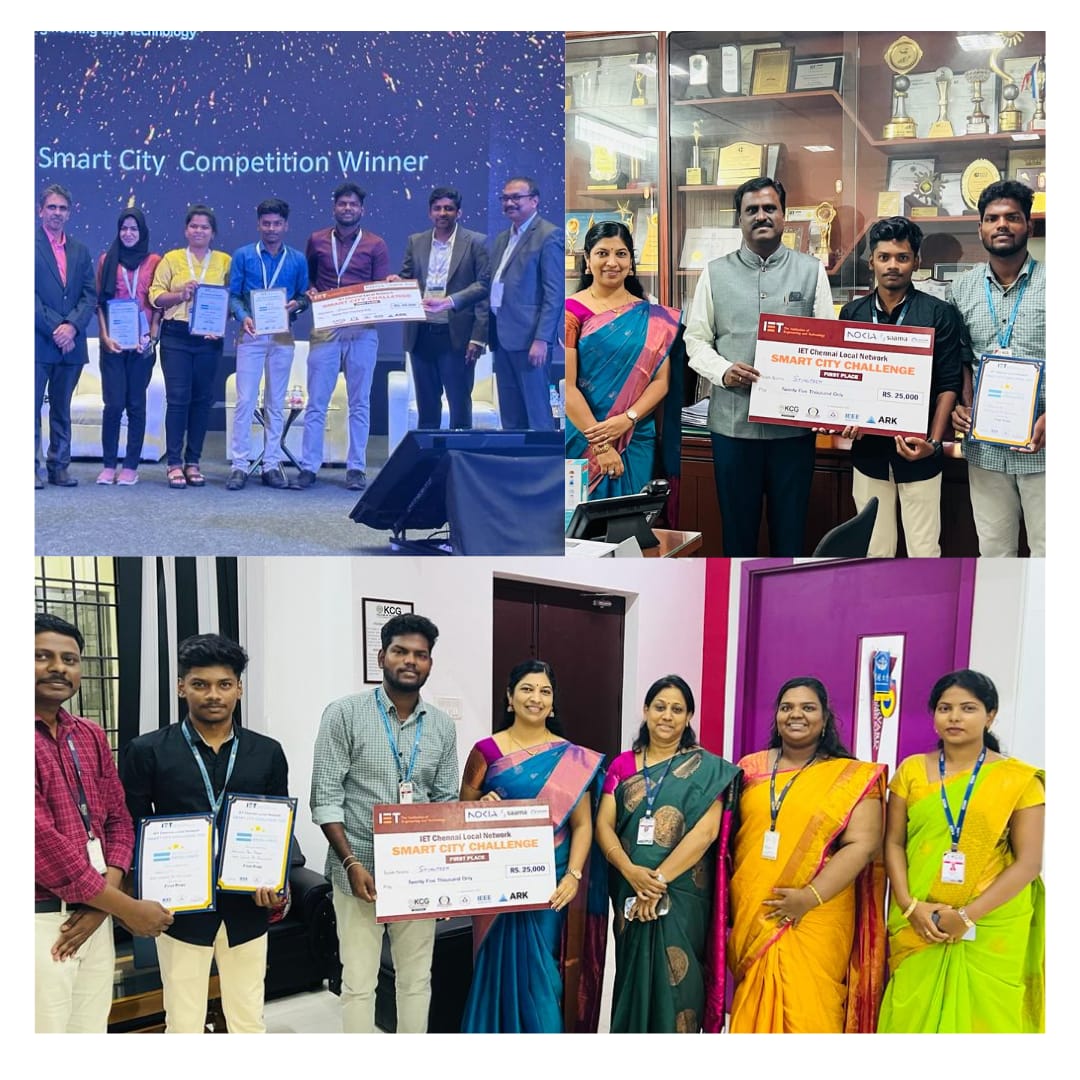
Vasanth.M and Heavenly Paul Roshan.S won First prize with cash prize of Rs. 25,000/- in the Smart City Challenge 2023 organized by The Institution of Engineering and Technology on 01.09.2023
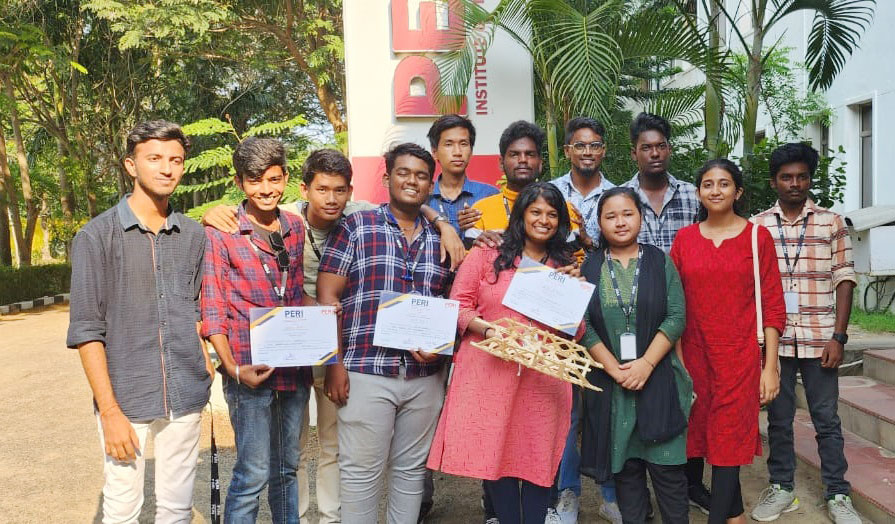
Students won prizes at state level technical Buildathon organized by PERI Institute of Technology on 05.04.2023
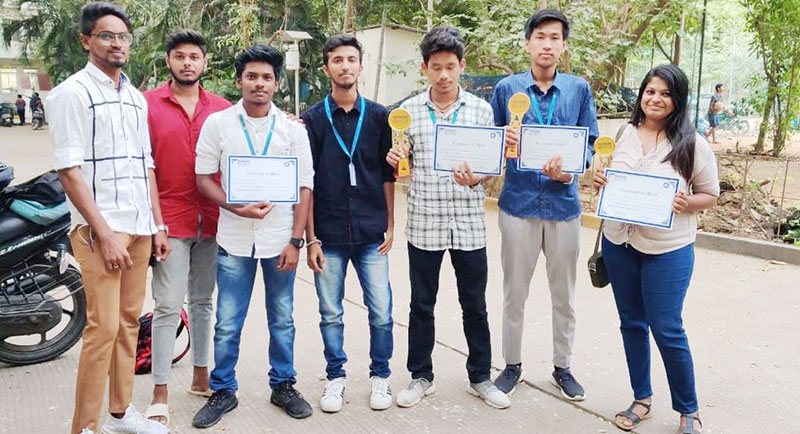
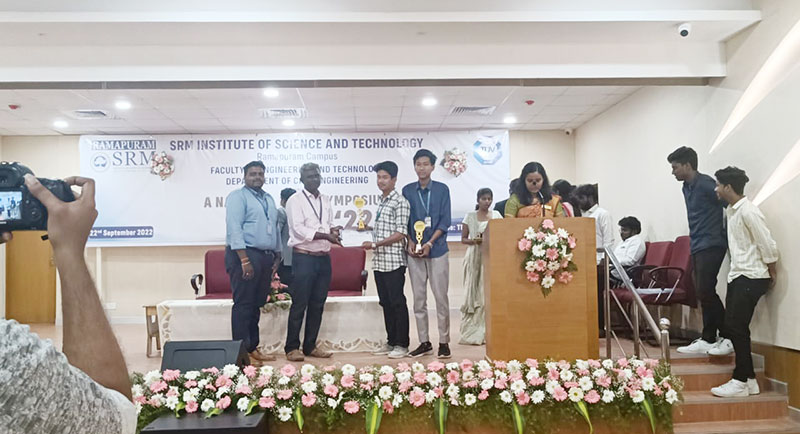
Civil Students won prizes in paper presentation from SRM University
Value Added Programmes Organized
Academic Year: 2022-2023
| Sl. No | Name of the Value added Programme | Year of Offering | No of Students Completing the course |
| 1 | Building Information modelling using ArchiCAD | 2023 | 21 |
| 2 | Building Information modelling using Revit Architecture | 2023 | 23 |
| 3 | Analysis and design of structures using TEKLA | 2023 | 23 |
| 4 | Architectural Planning and Modelling of buildings as per By-Laws using AutoCAD | 2022 | 22 |
| 5 | Analysis and Design of Structures using STAAD Pro. | 2022 | 23 |
Academic Year: 2021-2022
| Sl. No | Name of the Value added Programme | Year of Offering | No of Students Completing the course |
| 1 | Building Information modelling using Revit Architecture | 2021 | 23 |
| 2 | Analysis and design of structures using TEKLA | 2021 | 23 |
Academic Year: 2020-2021
| Sl. No | Name of the Value added Programme | Year of Offering | No of Students Completing the course |
| 1 | Architectural Planning and Modelling of buildings as per By-Laws using AutoCAD | 2020 | 20 |
| 2 | Building Information Modelling using Revit Architecture | 2020 | 16 |
| 3 | Analysis and Design of Structures using STAAD Pro. | 2020 | 54 |
Academic Year: 2019-2020
|
Sl. No |
Name of the Value added Programme |
Year of Offering |
No of Students Completing the course |
| 1 | Structural Analysis and Design of Reinforced Concrete Structures using Staad Pro |
2019 |
58 |
| 2 | Building Information Modelling using Revit Architecture |
2019 |
54 |
| 3 | Town Planning using Auto CADD 2D and 3D |
2019 |
15 |
Academic Year: 2018-2019
|
Sl. No |
Name of the Value added Programme |
Year of Offering |
No of Students Completing the course |
| 1 | Planning and Designing of a Residential Building using Auto CADD |
2018 |
58 |
| 2 | Building Information Modelling using Revit Architecture |
2018 |
65 |
| 3 | Structural Analysis and Design of Reinforced Concrete Structures using Staad Pro |
2018 |
94 |
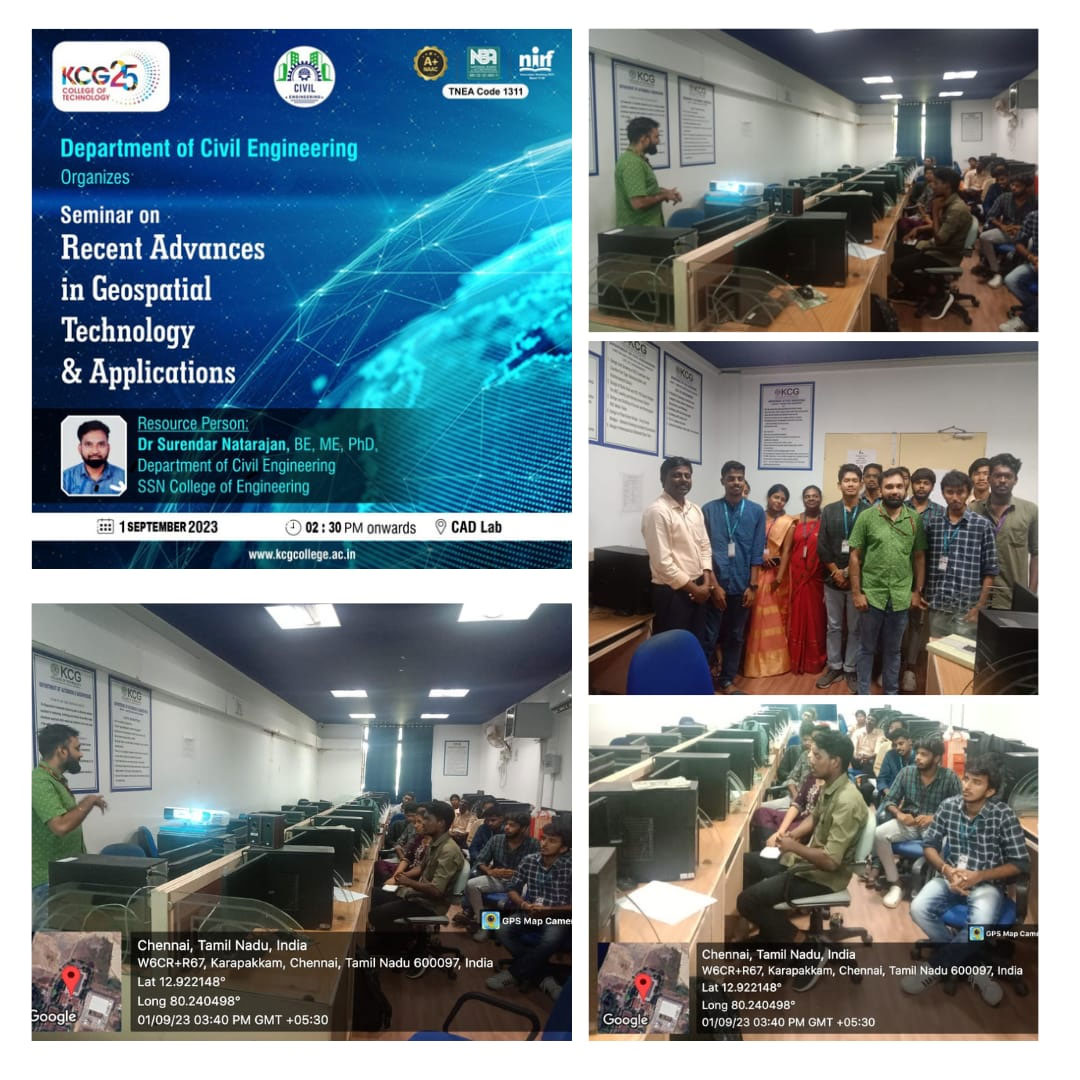 |
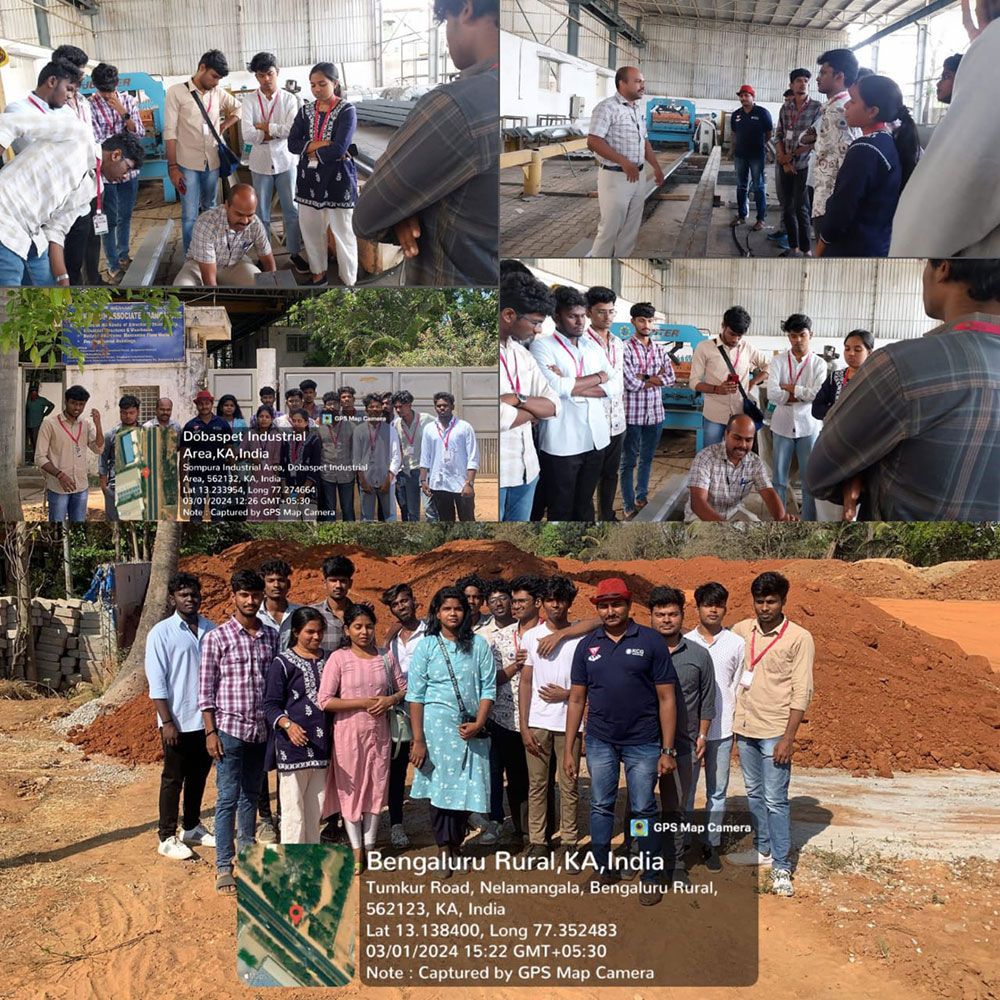 |
| The Department of Civil Engineering organized Seminar on “Recent Advances in Geospatial Technology and Applications” on 01.09.2023. Resource Person: Dr. Surender Natarajan Department of Civil Engineering, SSN College of Engineering |
Industrial Visit to “Pre-Engineering Board and Manufacturing Yard” located at Peenya Industrial Area, Bangalore, Arranged for Second Year Civil Engineering Students on March 1, 2024 |
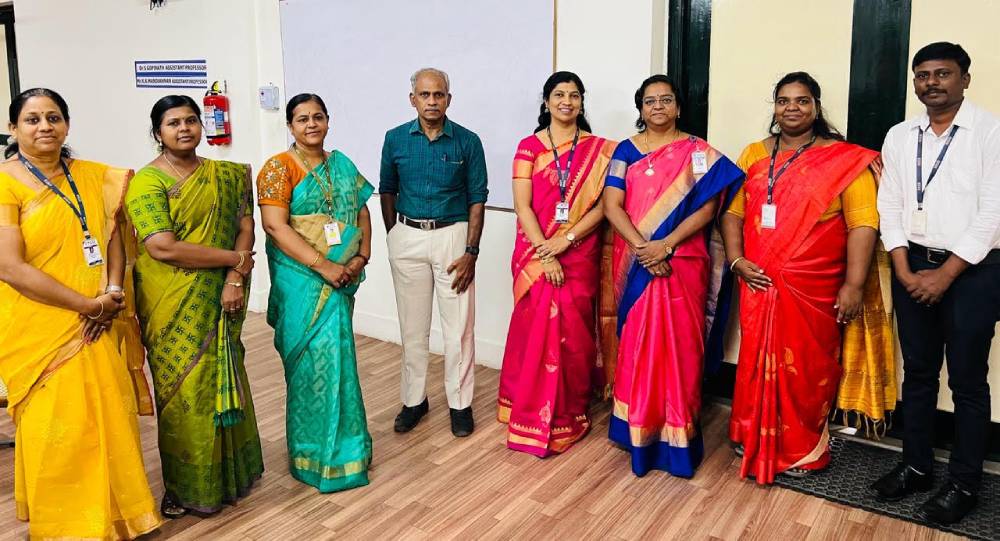 |
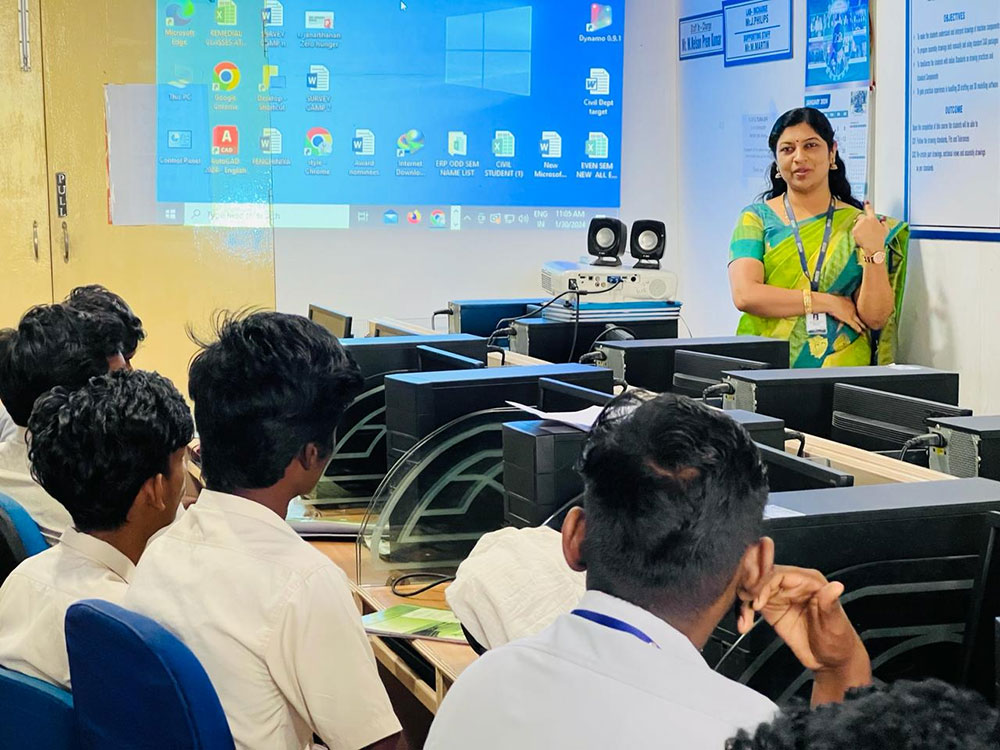 |
| Board of Studies Members Meeting held in July 2023. | ‘Career opportunities in Civil Engineering’ by Dr. V. Vandhana Devi |
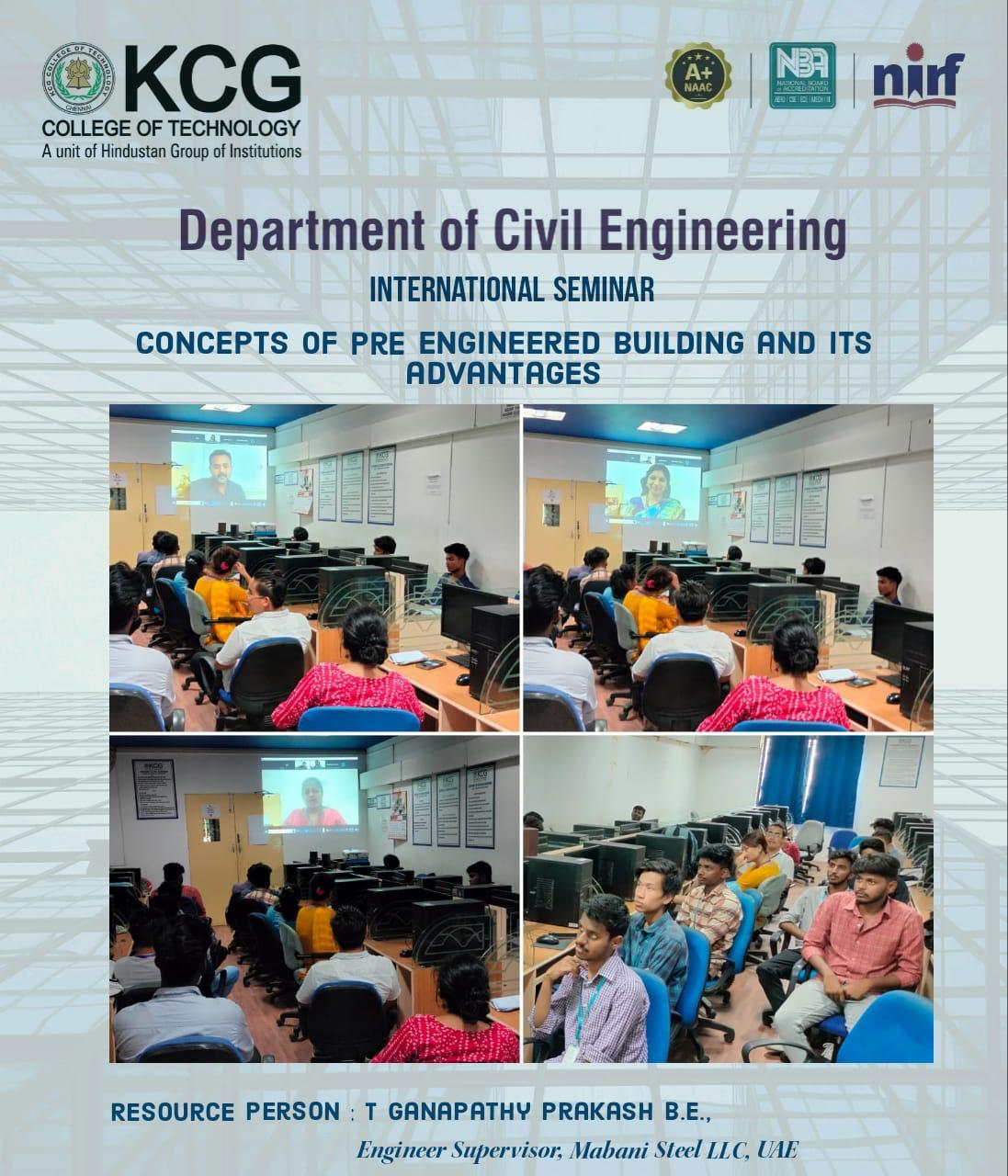 |
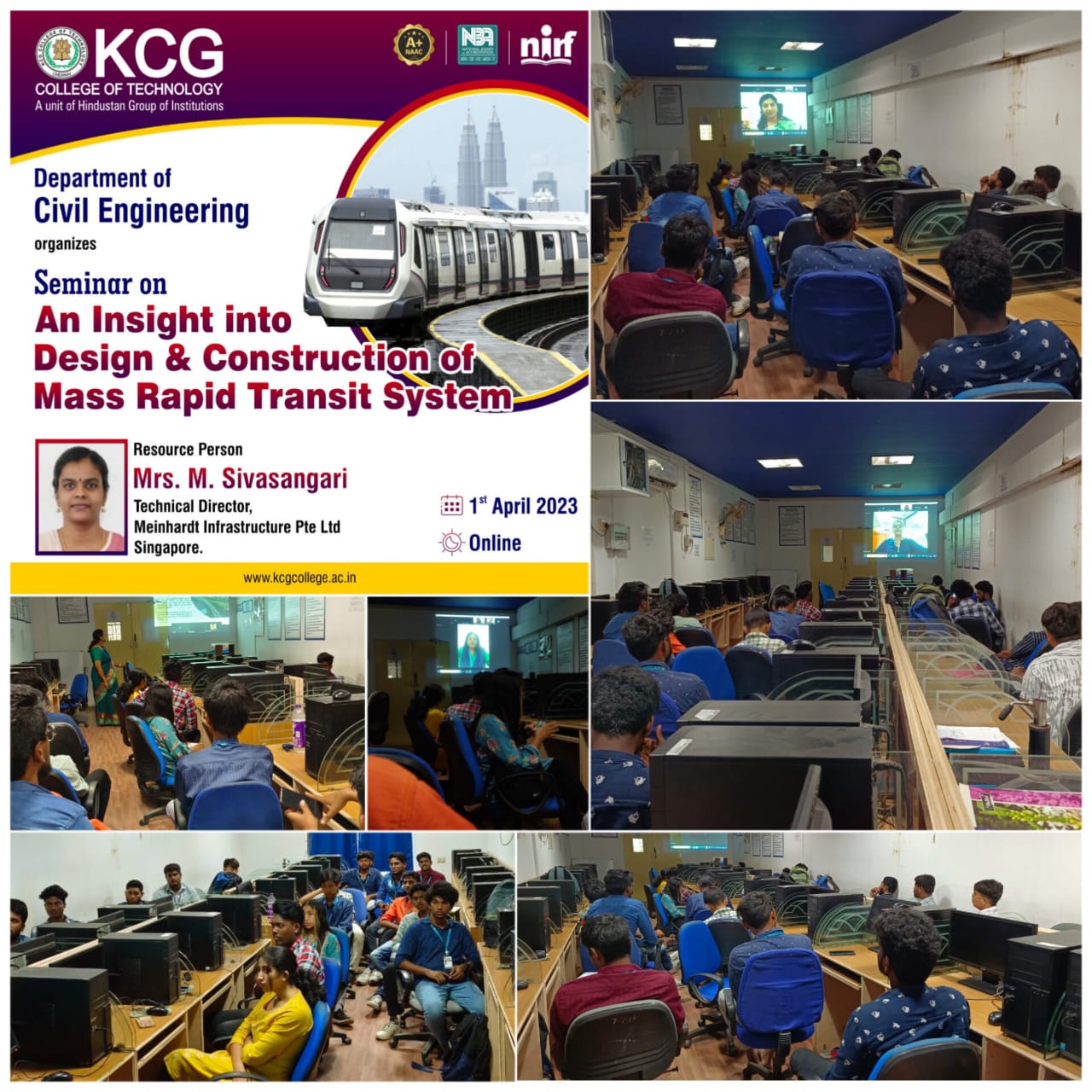 |
| International Seminar on Concepts of Pre-Engineered Building and its advantages | Seminar on An Insight into Design & Construction of Mass Rapid Transit System |
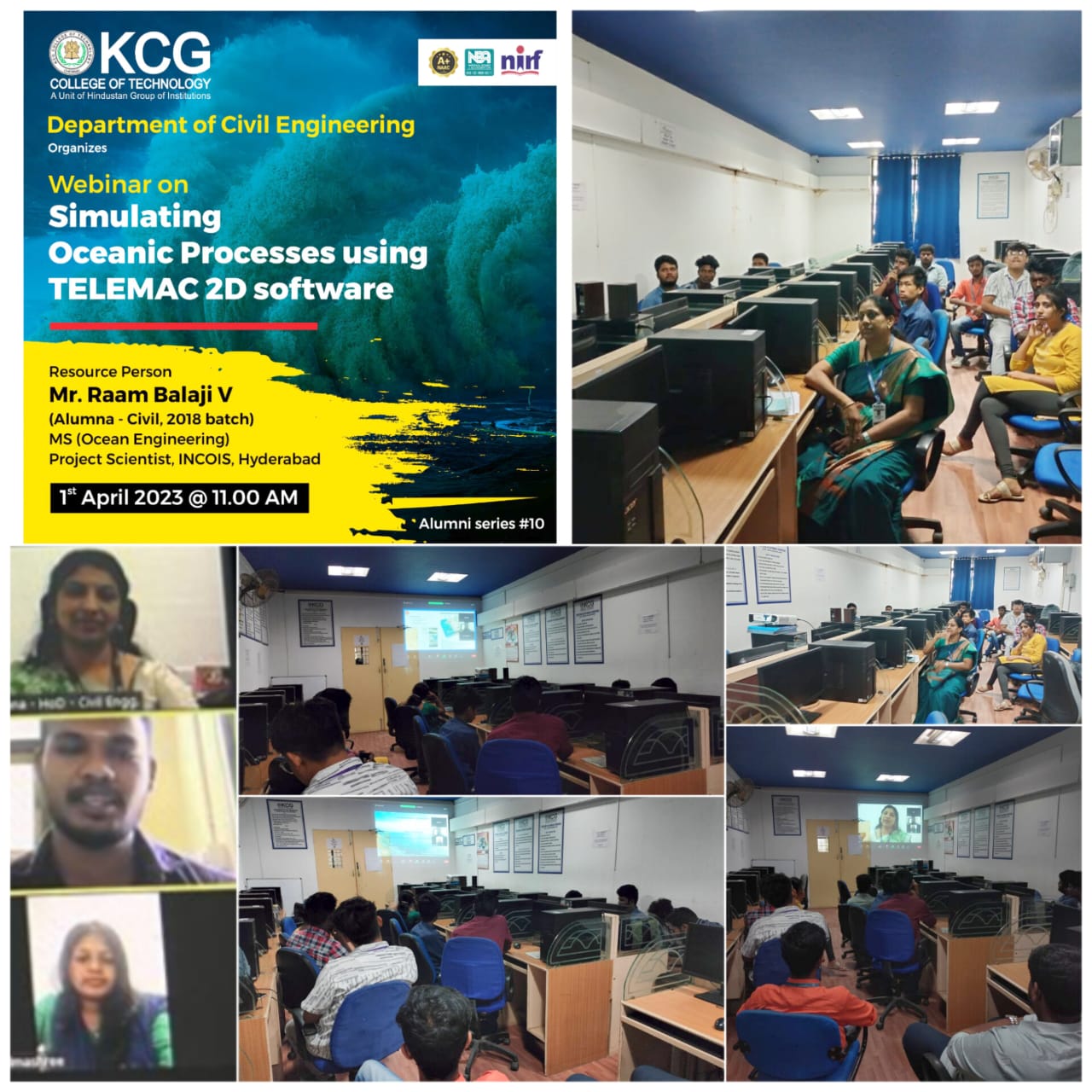 |
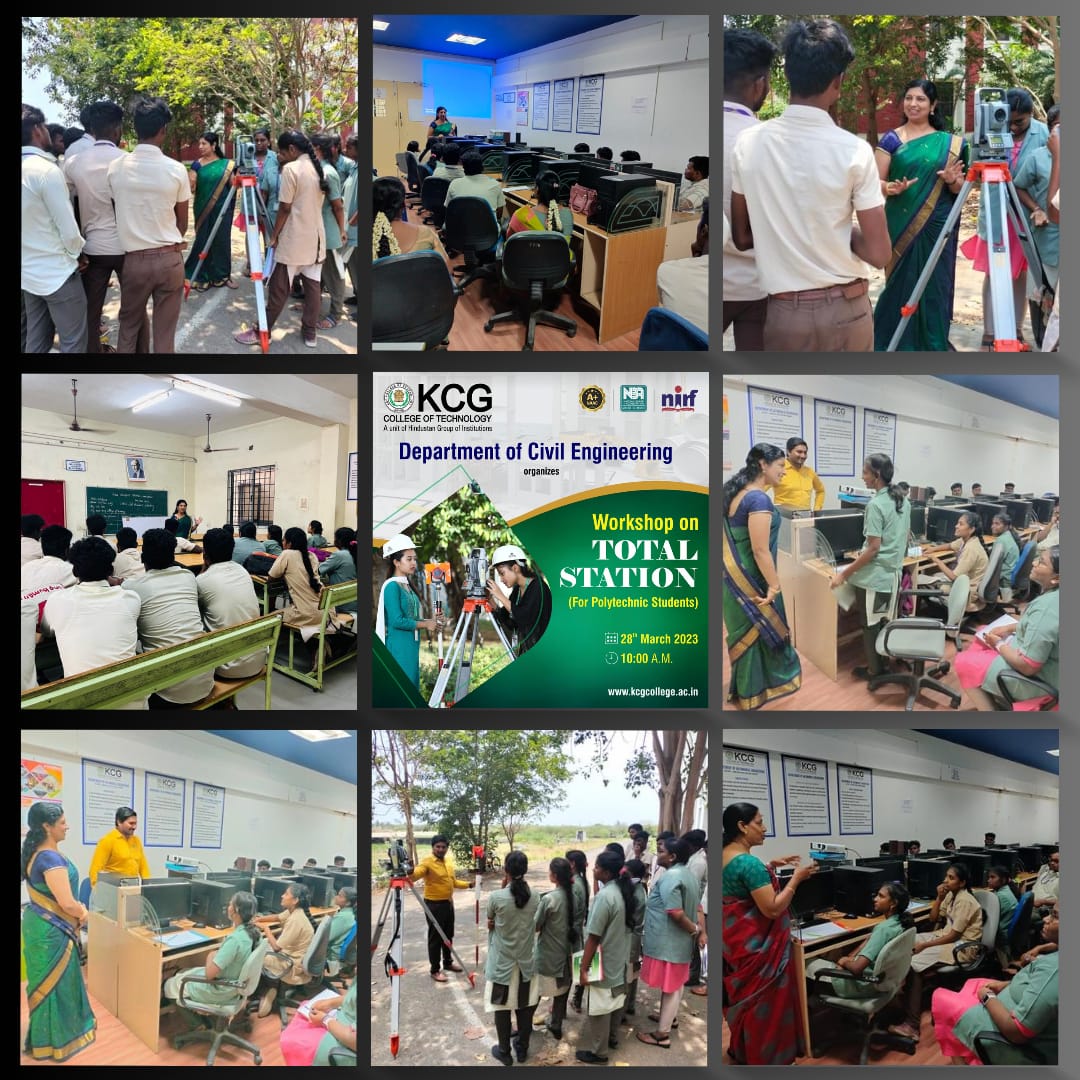 |
| Webinar on Simulating Oceanic Processes using TELEMAC 2D software | Workshop on Total Station for Polytechnic Students |
 |
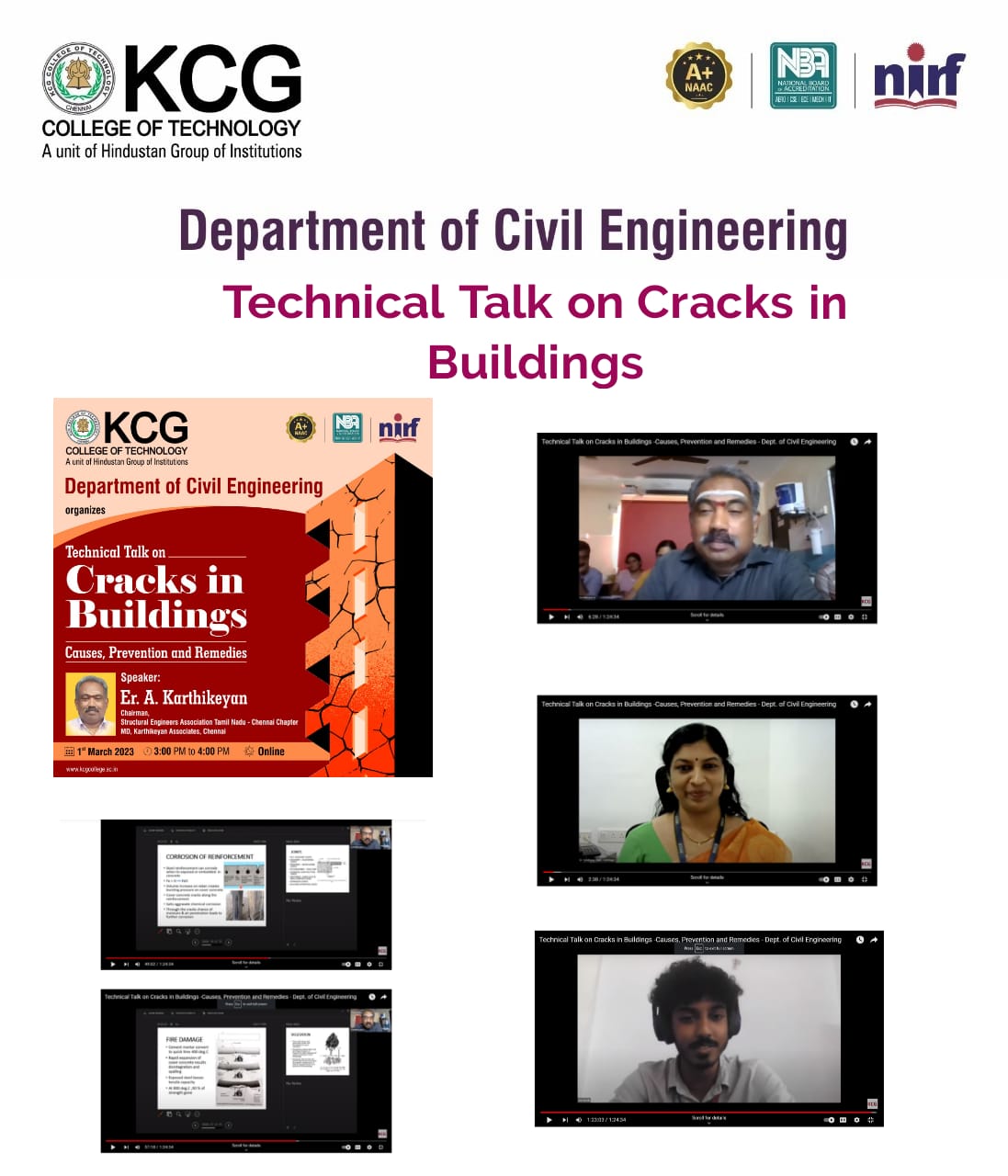 |
| Technical Talk on- Water Treatment Process and its Applications | Technical Talk on – Cracks in Buildings |
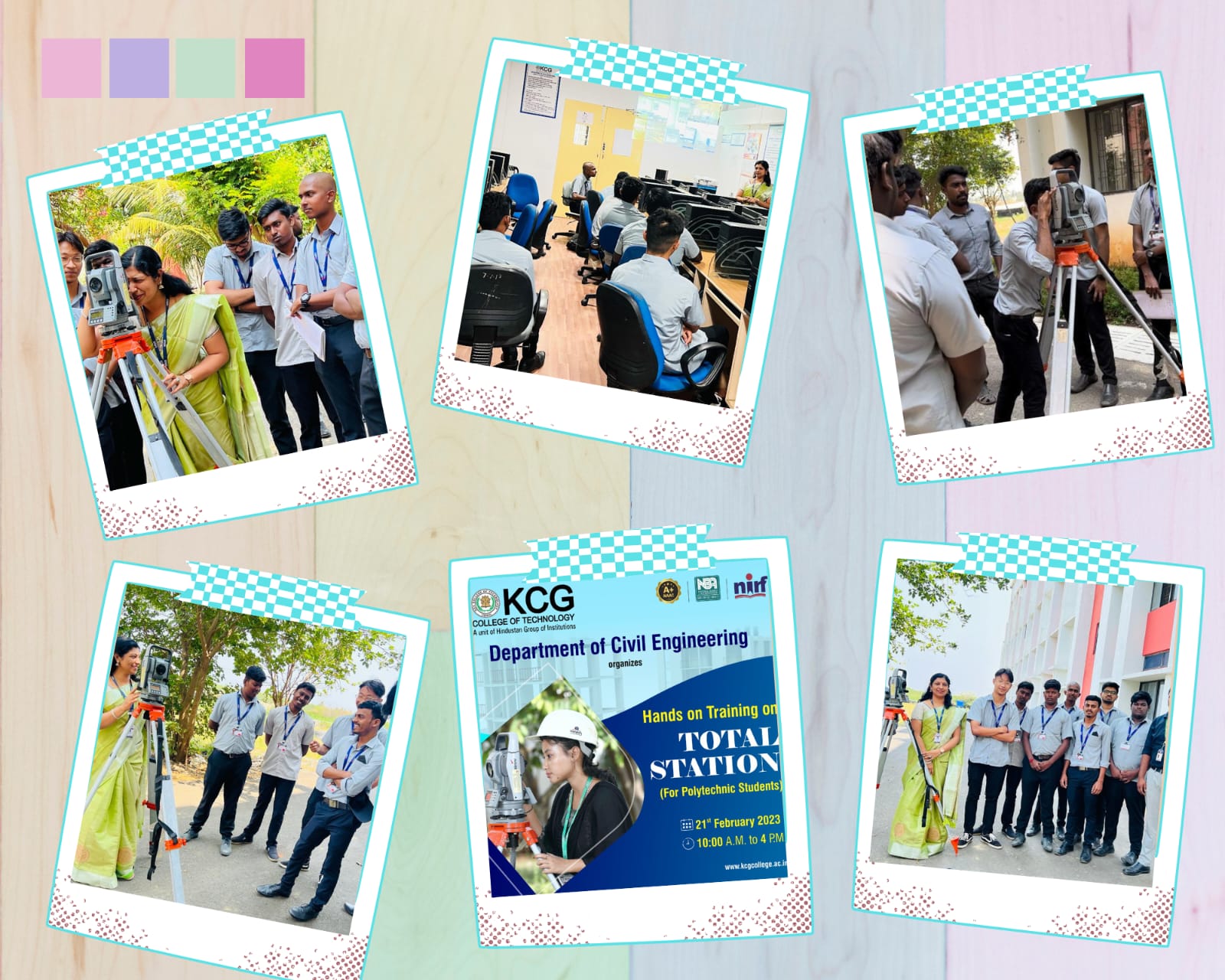 |
 |
| Hands on Training on Total Station- Polytechnic students | Students attending a webinar on Campus Development of IIT Hyderabad – A Greenfield Project |
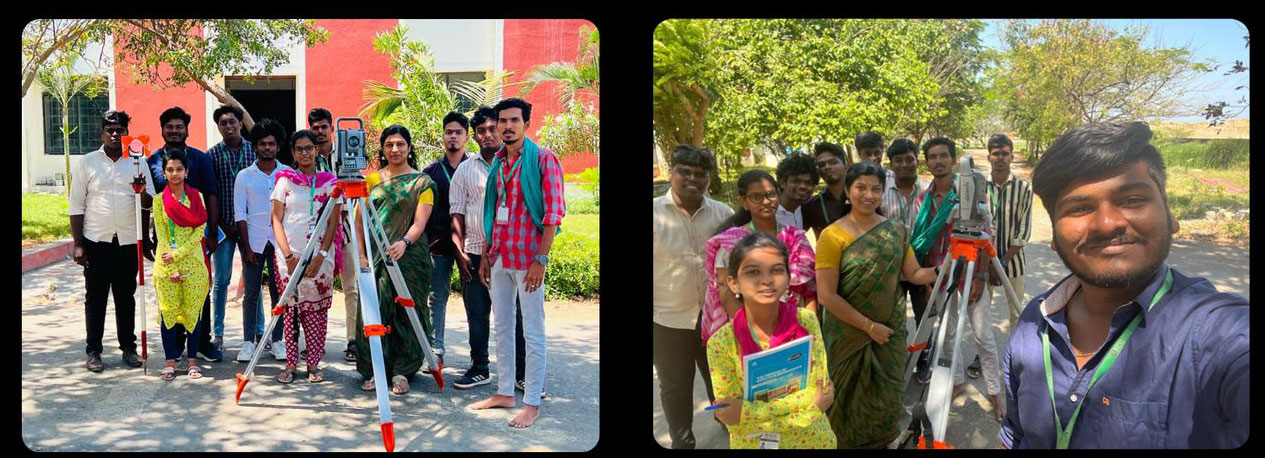 |
 |
| Hands on Training on Total station – Final years | Faculty members and students attended a webinar on 3D Printing in IITM |
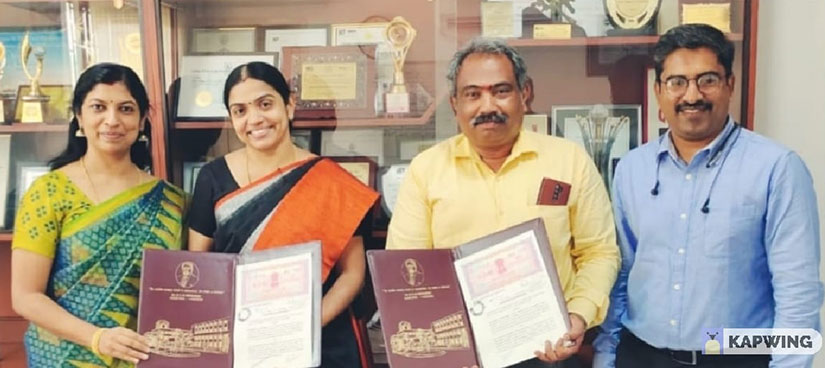 |
| MOU signing with Mr.Karthikeyan Associates |
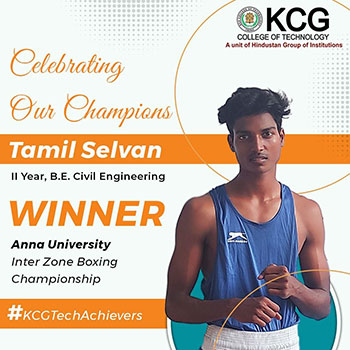 |
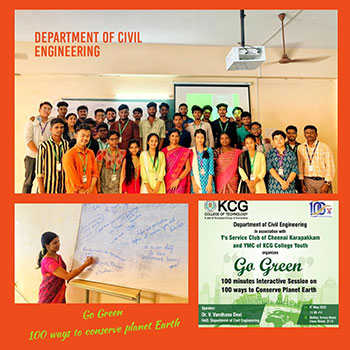 |
| Interzone Boxing Champion | Go Green Event |
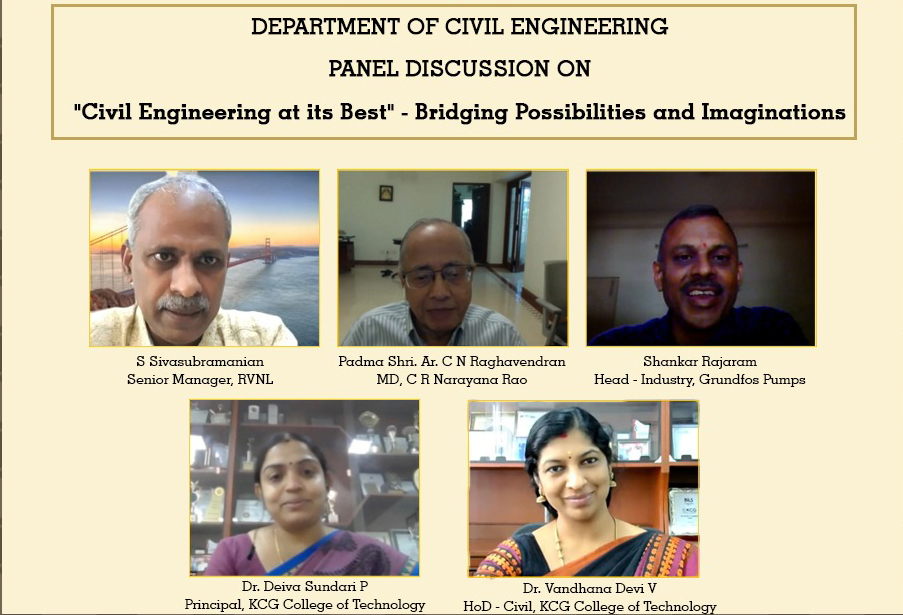 |
 |
| Student asking questions to panelist during the panel discussion |
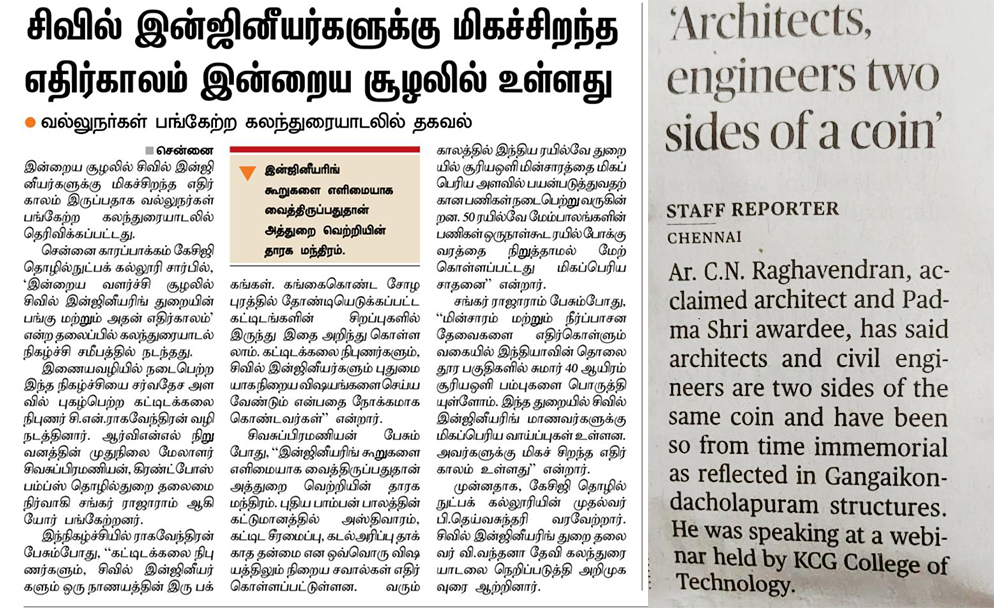 |
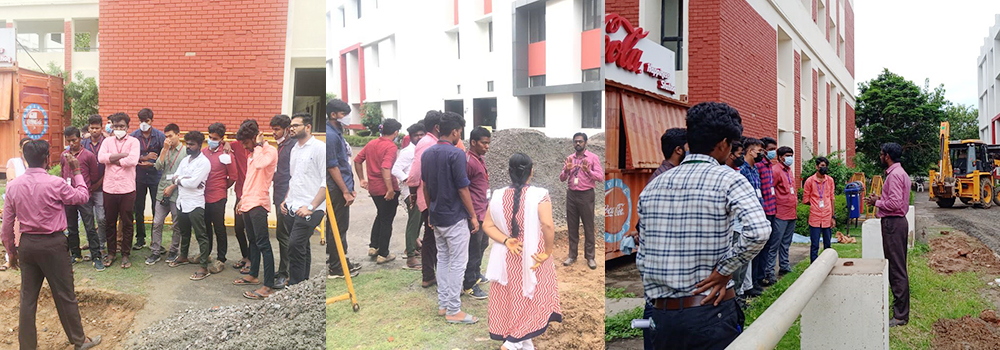 |
| Final year Civil Students Learning the Roadwork Construction |
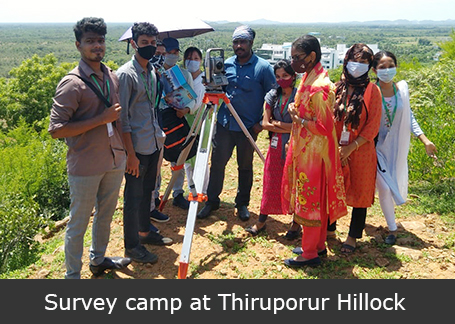 |
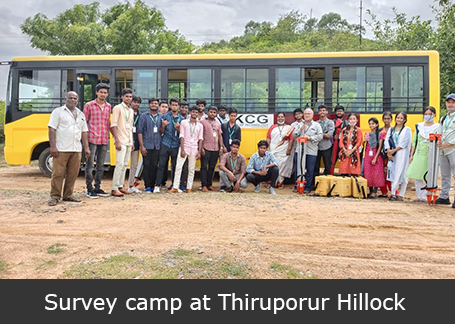 |
Career Opportunities for Civil Engineering Graduates- A Complete Guide:
Civil engineering is one of the oldest and most established branches of engineering, and its graduates are highly sought after for a variety of jobs. Civil engineers specialize in the design, construction, and maintenance of infrastructure such as roads, bridges, tunnels, airports and dams. As a civil engineer, you will be responsible for ensuring that these structures are built to last and that they meet all safety standards.
In this guide, we will go over the various career opportunities available to civil engineering graduates. We will look at the different job types and discuss what skills are needed for each. We will also cover salary expectations for civil engineers and explain how to find the right job.
Career Paths
Civil engineering is a diverse field with numerous career paths available to graduates. Depending on your interests, you can specialize in areas such as structural engineering, environmental engineering, geology, quantity surveying, consultant, construction management and contract worker. Once you have your degree, you can pursue a number of different positions in the field.
Structural Engineer: Structural engineers are responsible for designing safe and efficient structures such as bridges, roads, buildings, and dams. They use advanced mathematics and physics to calculate loads and stresses that will be placed on the structure and then design it accordingly.
Environmental Engineer: Environmental engineers use their knowledge of engineering principles to develop solutions for environmental problems such as air and water pollution, waste management, and climate change. They also use their skills to design systems that reduce emissions and conserve resources.
Geologist: Geologists study the structure of the Earth’s surface. They use their understanding of geological processes to locate natural resources, such as oil and minerals and advise on ways to exploit them safely.
Quantity Surveyor: Quantity surveyors are responsible for estimating the cost of construction projects. They must have a precise understanding of how much materials will cost and how long it will take to complete each stage of construction before they can provide an accurate quote to the client.
Consultant: Consultants are experts in their field who provide advice and guidance to clients on a variety of topics related to civil engineering. They might be employed by large firms or work independently as independent contractors.
Construction Manager: Construction managers oversee the entire process of construction projects from start to finish. They must have strong managerial skills and understand all aspects of construction, from budgeting and design to safety regulations.
Contract Worker: Contract workers are hired on a short-term basis for specific projects. They might be hired to build one section of a bridge, or they could be responsible for the entire project.
Are You Wondering What Kind Of Pay Check A Civil Engineering Graduate Can Expect?
Well, salaries for these graduates fluctuate depending on the job’s type, location, and the individual’s experience. Generally, civil engineering salary could range between 1 to 1.5 Lakh a month, our alumni in the past have been placed at this salary range and we’re glad to share it here. However, experienced engineers with advanced degrees can earn significantly more.
Conclusion
Civil Engineering is a challenging and rewarding field that offers graduates a wide variety of career opportunities. With the right skills and experience, you can pursue any number of roles in the industry. Whether you are interested in designing bridges, developing solutions for environmental problems, or becoming a construction manager, there is always something new to learn. We hope that this guide has given you a better understanding of the career paths available to civil engineering graduates.






